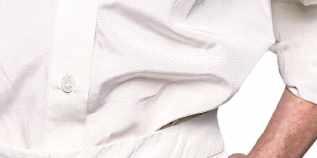






Fletcher’s journey to justice











Fletcher’s journey to justice






Next week marks 600 days since the mass terror attacks that burned the date

7 October into our collective consciousness. Israel is understandably unable to move on from that dark hour; even now, dozens of hostages remain in Gaza, their condi-


tion unknown.


ment this week announcing whims
The international climate, however, has brought a cold front from the west – notably here in the UK, with the government this week announcing the suspension of free trade talks. Israel is increasingly isolated on the world stage, becoming more reliant on the whims of Donald Trump, whose growing closeness to Qatar is of deep concern.
Our community is grappling with twin truths. There is the knowledge that
Hamas, which even now exercises control over Palestinians in Gaza, is irrevocably wedded to Israel’s destruction, pledging to carry out further 7 Octobers. But there is also the fear, whether openly voiced or quietly thought, that if the IDF now does what coalition minister Bezalel Smotrich claims it will do – only allow the bare minimum of food into Gaza, destroy any remaining infrastructure and ultimately expel all its inhabitants – that such actions will be a moral calamity that the world will not countenance.
It would also e ectively mean giving up on the remaining hostages and on our cherished Jewish values.
This war cannot go on forever – for the sake of Israelis and Palestinians – without a path to a future for both peoples. World leaders should join with Israel to decide what a postwar, post-Hamas Gaza will look like.
Failure to do this cedes the floor to extremists who would risk turning the entire region to ashes.
Full story and analysis, pages 2 & 3

The Reform and Liberal Judaism movements have voted by over 95 percent to merge into a single Progressive Judaism group – the UK’s first Jewish denominational merger. Full story, pages 4 and 34


















by Lee Harpin lee@jewishnews.co.uk
Israel has hit back at the UK government’s decision to suspend trade negotiations over its Gaza blockade, fuming: “The British mandate ended 77 years ago – sanctions won’t deter us.”
After David Lammy had outlined the new moves in parliament – which also included the summoning of ambassador Tzipi Hotovely to the Foreign O ce and more sanctions on the occupied West Bank settler movement –a spokesperson for Israel’s foreign ministry said: “If, due to anti-Israel obsession and domestic political considerations, the British government is willing to harm the British economy – that is its own prerogative.
“External pressure will not divert Israel from its path in defending its existence and security against enemies who seek its destruction.” It added: “The British Mandate ended exactly 77 years ago.”
In his statement, Israel’s spokesperson Oren Marmorstein said: “Even prior to this announcement, the free trade agreement negotiations were not being advanced at all by the current UK government.”
He then addressed the West Bank sanctions saying: “The sanctions against residents of Judea and Samaria are unjustified and regrettable, especially at a time when Israel is mourning yet another victim of Palestinian terror – Tzeela Gez, of blessed memory, who was murdered on her way to the delivery room. Doctors continue fighting for her newborn’s life in hospital.”
In the UK, Jewish News understands that the main communal organisations are still

considering their response to the government’s announcement, made to a packed House of Commons on Tuesday.
Labour Friends of Israel did, however, issue a statement saying it was “disappointed” by the government’s decision to suspend negotiations on a UK-Israel free trade agreement, claiming that the move will “play into the hands of the Netanyahu government while isolating moderate voices for peace”.
LFI said it supported sanctions against West Bank settlers, and supported an immediate Gaza ceasefire and the unconditional release of all Israeli hostages, along with the
end of Hamas rule in the region.
In a statement to parliament on Tuesday, the foreign secretary announced the formal pause of free trade agreement negotiations with Israel, e ective immediately.
Lammy said: “Netanyahu’s actions have made this necessary.” He told MPs the UK could not stand by in the face of new deterioration to the situation in Gaza.
“It is incompatible with the principles that underpin our bilateral relationship,” said Lammy. Frankly, it is an a ront to the values of the British people.
“Therefore today I’m announcing that we

have suspended negotiations with this Israeli government on a new free trade deal.
“We will be reviewing co-operation with them under the 2030 bilateral relationship.”
One communal source said there was a sign of “broad support” for the government’s actions among progressive Jewish organisations. But the response in modern Orthodox circles was “more critical”.
Another source suggested the UK had managed to do a trade deal with India under Narendra Modi and the US under Donald Trump but not “the world’s only Jewish state”.
Lammy also told the Commons: “Civilians in Gaza facing starvation, homelessness, trauma, desperate for this war to end, now confront renewed bombardment, new displacement and new su ering, and the remaining hostages kept apart from their loved ones by Hamas for almost 600 days are now at heightened risk from the war around them.”
Earlier Keir Starmer said Britain “cannot allow the people of Gaza to starve” and that levels of su ering in the strip were “utterly intolerable”.

BY RICHARD PATER DIRECTOR OF THE BRITAIN ISRAEL COMMUNICATIONS AND RESEARCH CENTRE (BICOM) IN ISRAEL
The late Shimon Peres liked to tell the story of two naval vessels crossing paths in the Mediterranean in the late 1940s. The Royal Navy commander waves and calls over to his interlocutor not seeing the flag, and ask him where he came from. “Haifa,” the second one answered. To which the Brit enquired, “Do you still have a problem with the Jews over there?”
This week feels like a reminder that even among enlightened allies, some still have a problem with the pro-
jection of Jewish power. While it’s completely legitimate for allies, even close allies to have profound disagreements, both sides should realise that instead of megaphone diplomacy the appropriate protocol to overcome these challenges is closer dialogue, better communication and empathy, not unilateral retribution.
The British government’s pronouncements sound out of touch to Israeli ears. Far away from the comfort of Westminster, the harsh reality is keenly felt across Israel, particularly at a time when life is still regu-
larly interrupted by Houthi missiles. Halting negotiations on a free trade deal appears vindictive and self defeating. Sanctions against Israeli settlers, however loathsome, does not bring peace any closer.
Regarding Gaza, it is incumbent on Israel to share enough intelligence for the Brits to know that there is no starvation. Similarly the measures the IDF takes to avoid civilians must be shared with their British counterparts too. Furthermore, they should be made aware of Hamas tactics, including diverting aid, as well as the highly problematic role of UNRWA in perpetuating Hamas rule. The UK government should be supporting the US e orts to establish a
new mechanism to e ciently deliver aid directly to the Gazan people, circumventing and disempowering Hamas. The UK could also use its own close ties with Qatar to encourage them to cut their financial support to Hamas and clearly articulate that there can be no future rebuild if Hamas remain in power. It is our obligation to remember every day the fate of the remaining hostages held in Hamas dungeons. That it remains an open wound in Israel, Jews around the world and non-Jewish allies with a moral compass. I’m left thinking, what would the British government be doing if the equivalent – 300 Brits – were being held captive for close to 600 days?

Home secretary Yvette Cooper has confirmed the government’s intention to introduce laws to proscribe “state threats”, which could lead to the proscription of Iran’s Revolutionary Guard, writes Lee Harpin.
Communal organisations including the Labour and Conservative Friends of Israel groups, along with the Board of Deputies, have long called for the Islamic Revolutionary Guard Corps (IRGC) to be banned.
In a Commons statement on Monday, Cooper said a review into security by Jonathan Hall KC had found that current counter-terror laws were unsuitable for dealing with those actors who are state-backed.
She told MPs she “continued to be concerned by the activities of the IRGC” and that new laws will be “stronger than current national security powers in allowing us to restrict the activity and operations of foreign state-backed organisations in the UK, including new criminal offences for individuals who invite support for, or promote the group in question”.
Reform UK’s Richard Tice asked
One of the community’s most prominent philanthropists has joined growing criticism of the Israeli government’s decision to restrict aid reaching Gaza.
In a letter published by the Financial Times on Monday, Dr Arabella Duffield says Benjamin Netanyahu’s government is “endangering what’s left of its moral authority” by first withholding aid and then “agreeing to resume only limited humanitarian supplies”.
Declaring herself a Zionist whose family have deep ties to Israel, the daughter of Dame Vivian Duffield and trustee of the Clore Israel Foundation

Cooper why the government had not gone ahead with proscription already.
She replied that it would act when laws were “strengthened” to deal with terrorism by “state threats”.
Calls to ban the IRGC were often made under the previous Tory government; arguments against doing so included wanting to keep diplomatic back channels open with Tehran.
Cooper said powers introduced under the last government “were not strong enough” to ban the IRGC. Responding to shadow home secretary Chris Philp, she said: “This government is clear that the rules need to be respected and enforced, and that is

wrote that while Hamas had conducted “unspeakable acts” on 7 October 2023, “none of this misery is the fault of the children of Gaza”.
Duffield, grand-daughter of Charles Clore and chair of Weizmann UK, said she had been asked, through her
why this government is introducing counterterrorism-style powers to strengthen our border security, something that his party, shockingly, has repeatedly voted against.”
She added: “Border security is a part of our national security and I am sorry that [Mr Philp] is not sufficiently taking seriously the national security threats that we face.”
Labour MP Luke Akehurst asked Cooper about threats to Jews in the UK from malign Iranian regime actors. He was given an assurances that the safety of the community was paramount to the government.
Cooper said that Hall, the government’s independent reviewer of terrorism legislation, had reported “gaps in a series of areas, including on proscribing legislation where he identifies a series of legal difficulties in using powers that were designed ... for state and state-backed organisations, such as the IRGC”.
She said. “We will draw up new powers, modelled on counter-terrorism powers, in a series of areas to tackle those state threats.”
expertise as a nutritionist, how anyone in the region can be experiencing starvation.
Without foreign journalists being allowed into Gaza since the start of Israel’s war against Hamas, she argues that the data from humanitarian organisations must serve as a warning. “Malnutrition is not rocket science,” she writes. “If there is no food going into a place, and no food being grown in a place, then what do people eat?”
She ended by stating: “No one should ever make the choice to allow children to starve.”
An alleged Palestinian gunman who reportedly called for the slaughter of Jews has been jailed for nine months after trying to enter the UK illegally.
Abu Wadee, 33, also known as Mosab Abdulkarim AlGassas, pleaded guilty on Monday to his attempt on a small boat to enter on 6 March.
He was arrested by immigration officers after arriving in Kent, having paid smugglers €1,500 (£1,300), Canterbury Crown Court heard.
He had livestreamed his arrival on the “overcrowded

and rigid inflatable boat”, the court heard.
Judge Sarah Counsell, sentencing, said there is “legitimate public concern about breaches



of border control” over illegal crossings. She told Wadee that there was a “risk of death or injury to you and others”.
The defendant, who left Khan Yunis in Gaza in 2022 before making asylum claims in Greece, Germany and Belgium, had no family or financial ties to the UK and had stayed in France for a week before making the crossing.
He posted a video on on Facebook last September in which he is filmed calling for Allah to “punish [Jews] completely”, it was reported.
Kemi Badenoch has said her Conservative Party remains the “last line of defence” for Israel in the UK parliament as we witness the blossoming of an “unholy alliance between the hard-left and Islamist extremists” on the streets, writes Lee Harpin.
In her keynote speech at Monday’s Conservative Friends of Israel business lunch, she ignored the growing support in her own party for the Palestinian cause and declared: “Israel is not alone. We stand with you.”
Recalling her upbringing under military dictatorship in Nigeria, Badenoch reiterated her support for Israel and its values which were also British values, she said. “The Conservative Party will always stand for them.”
Badenoch said Keir Starmer’s Labour Party lacked “moral courage” and “bowed to the mob, pandered to the haters too often on our streets marching past synagogues”. She had refused to hand taxpayers money to the Irish rap act Kneecap when she was business secretary, she added.
“Labour got in and handed it over.
“This is the reality of parliament today. Politically, the Conservative

Party is the last line of defence, no other party cares. No other party will do what we do.”
Badenoch said the Conservatives held “unwavering support for Israel”, adding: “The idea that Jews and only Jews are not entitled to a homeland is antisemitic. It is racism. Full stop.”
She said Labour MPs were now “actively aligning the UK against our democratic ally” Israel, and that “worse than that, we have elected MPs on sectarian platforms”. Some of their statements in parliament show that “it’s not really about Gaza…. it’s the rejection of Israel’s right to exist”.
About 12 members of Badenoch’s shadow cabinet attended and organisers said about half of elected Tory MPs were in attendance.



by Lee Harpin lee@jewishnews.co.uk
In a history-defining moment, members of Britain’s Movement for Reform Judaism and Liberal Judaism have voted to unite into one Progressive Judaism for the UK.
The decision was made at two parallel extraordinary general meetings, with the number of votes in favour at each exceeding the 75 percent threshold required for unification.
Reform voted 95 percent in favour of the move, while 98 percent of Liberal Judaism members backed unification, early indications showed on Sunday.
Dr Ed Kessler – a leading interfaith thinker, writer and academic –chaired the Advisory Board that has overseen the process. He said of the decision: “This is the biggest change
and most significant development in British Judaism since the Second World War.
“For the first time, this country now has a single, unified Progressive Judaism, providing a voice and a space that brings together timeless Jewish tradition with the diversity and values of 21st-century Jewish life.”
The new Progressive Judaism will be the UK’s largest synagogal movement, measured by its number of communities. It will represent more than a quarter of synagogue affiliated Jews, with the goal of reaching out to roughly the same percentage of non-affiliated Jews who are known to align with Progressive Jewish values.
Jewish News understands that only two communities voted against the move.
This is the first ever known unification of two Jewish denominations
and the culmination of 250 years of Progressive Jewish history (see addendum for full timeline).
It is the first merger of any two religious streams since the Presbyterian and Congregational Christian groupings formed the United Reformed Church in 1972.
Rabbi Charley Baginsky, CEO of Liberal Judaism, and Rabbi Josh Levy, CEO of the Movement for Reform Judaism, have led the process and will continue the work of creating the new movement. They have spent the last two years, since the project travelling and hearing directly from Progressive Jewish communities.
Rabbi Josh Levy said: “We have heard first-hand how Progressive Jews all around the country want to take this once-in-a-generation opportunity to create something
A man has been caught on security camera allegedly removing a mezuzah from a Jewish home in Golders Green in what is being investigated as a possible antisemitic attack.
Footage released by Shomrim North West London shows a man walking up to the front door of a property on Sunday morning and appearing to use a knife to remove the case and religious scroll from the doorpost before walking away.
The incident was one of several reported across the area in recent days.
In a statement, Shomrim confirmed it had received

multiple reports of mezuzahs being deliberately removed from Jewish homes in the
area. The group described the incidents as “targeted acts of vandalism and theft” that have caused “significant distress within the local Jewish community.” Shomrim said it is actively working with the Metropolitan Police to identify and apprehend the suspect. CCTV from affected properties and surrounding areas is being reviewed as part of the investigation.
Police confirmed an investigation is under way.
A spokesperson told Jewish News: “Officers are working to identify the man and anyone with any information is asked to contact us.”
new and intentional – a Progressive Judaism that has something to say into the world and that can help more people have more fulfilling religious lives.”
Rabbi Charley Baginsky added: “We are now seeing the fruition of the next iteration of Progressive Jewish history. Through this vote, our members are both standing on the shoulders of all those who came before us and creating something long and lasting for our children and the generations who come after us.”
Liberal Judaism chair Karen Newman said: “Our new Progressive Judaism, just like the two movements which have come together to create it, will manifest from day one its commitment to a Judaism that is non-dogmatic, inclusive and celebrates diversity in policy, prayer, and practice.”
Paul Langsford, chair of the Movement for Reform Judaism, added: “As a unified movement, we will now be stronger, our voice will be louder and we will be able to bring even greater benefit not just to our own members, but to the whole Jewish community and wider British society.”
The new Progressive Judaism will have four key missions: to strengthen, support and connect its communities; to promote, amplify and embolden Progressive values and forms of Jewish life; to inspire and nurture the next generations of Progressive Jews; and to foster inclusion, provide resources and pave the way for those seeking to join.
It will take six months to form the new Movement for Progressive Judaism, with a brand launch and celebration planned for November. • Opinion, page 34
The UK charitable affiliate of an organisation supporting wounded and disabled IDF veterans has contacted its donors today, informing them that it has been the victim of significant transaction fraud, writes Daniel Sugarman.
Senior representatives of the Beit Halochem UK charity wrote to supporters, describing themselves as “devastated” by the “deeply distressing incident”, and referring to the perpetrator as “a third-party foreign exchange company that we had worked with reliably for over three years.”
In the letter, the organisation’s chairman, Andrew Wolfson, and chief executive
Spencer Gelding, confirmed that the incident had been reported to the authorities and that a formal police investigation was now under way.
They added that while they were limited in what further information they could provide due to the nature of ongoing inquiries, they believed that at least two other organisations had been targeted by the same perpetrators.
Jewish News understands that the amount stolen from the charity was in the region of £1 million.
The letter from Wolfson and Gelding went on to state that “the amount involved in this fraud represents less than
10 percent of the total funds we have raised since October 7th 2023, and pertains to a single transaction transferring funds from the UK to Israel. Importantly, we have already taken steps to ensure this cannot happen again.
“New financial controls and oversight measures are now in place to strengthen our protection against such risks in future.
“Our mission, to support brave IDF veterans and victims of terror, is more vital than ever. We will not allow this criminal act to derail the work we do or the impact we strive to make.”
The police have been contacted for comment.
Wolfson Hillel Primary School has been crowned national champions in the English Schools’ Football Association (ESFA) Pokémon Primary Schools’ Cup, emerging victorious from a field of over 5,000 schools to win one of the UK’s top youth football tournaments.
The London Jewish school triumphed in the final held at Stoke City FC, defeating Booker Avenue Junior School 2-0 in a match described as a “thrilling” conclusion to months of regional and national knockout rounds.
Led by coach Adam Warner and parent assistant Rob Glass, the Year 6 squad had already won borough, county and regional titles – taking the Enfield, Middlesex and South East London championships – to secure their place on the national stage.

Support for men with prostate cancer has surged by 120 percent over the past four years, data shows, amid a sharp rise in UK diagnoses and growing awareness of inherited genetic risks in the Jewish community.
Between March 2020 and February 2025, Chai Cancer Care recorded an increase in prostate cancer support sessions from 427 to 938.
The figures highlight a year-onyear rise and growing demand for practical and emotional support in response to England’s most commonly diagnosed cancer.
One in eight men will develop prostate cancer in their lifetime.
Public figures such as Giles Coren and Stephen Fry have spoken out about the disease, fuelling calls for a national screening programme and improvements in early detection.

Coach Warner hailed the squad’s e ort: “They’ve worked incredibly hard all season and shown real character, teamwork and sportsmanship. To come through a tour-
The winning team included: Noah Beckwith (GK), Callum Livingstone, Asher Kramer, Max Reynolds (Captain), Jonathan Benjamin, Daniel Ward, Eli Aarami, Robert Fitch, Cooper Glass, and Leo Abrahams.
nament that started with 5,000 schools and lift the national trophy is an unbelievable achievement.”
Captain Max Reynolds added: “Every player gave everything for the team. To lift the trophy with all my friends was the best feeling ever.”
KKL, JNF UK’s legacy department, offers a range of professional services including assistance in arranging for your Will to be drafted, executorship services and personalised pastoral care. Our caring team will often act as family for clients who are alone in their autumn years. When they pass away, we ensure burial is arranged, Kaddish is said and their estate is administered. For more information on supporting JNF UK’s vital work in Israel, please contact one of our friendly team, for a no-obligation and confidential consultation: 020 8732 6101 | enquiries@kkl.org.uk
Victoria Portnoi, chief executive of Chai Cancer Care, said: “The rising demand for prostate cancer support highlights the urgent need for all-encompassing care. Prostate cancer a ects not just individuals but entire families, and at Chai, we provide a range of services to support them through every stage.”
She added: “With growing national calls for a screening programme and improvements in diagnostics o ering fewer false positives, awareness is increasing –and so too is the need for tailored, compassionate support. These figures reflect the trust our community places in us and our unwavering commitment to ensuring that no one faces cancer alone.” Campaigners also point to rising awareness of the BRCA1 and BRCA2 gene mutations – far more prevalent among Ashkenazi Jews – which significantly increase prostate cancer risk and have prompted more men to seek testing and support.

BBC Arabic is failing to moderate hateful comments on its social media channels, which include glorification of Hamas terrorist violence and death, according to new research, writes Daniel Sugarman.
In the last four months, the CAMERA Arabic watchdog organisation has found multiple examples where the publicly-funded BBC Arabic language channel has taken no action to remove highly concerning comments on stories relating to Israel. These include Hamas hostage releases, a terrorist attack in Haifa, Kibbutz Nir Oz reconstruction after the 7 October massacre and recent wildfires around Jerusalem.
Responses to a BBC video on the kibbutz reconstruction posted on BBC Arabic’s Instagram page, which contained footage of more than 300 terrorists storming the area on 7 October, included “300 resistance heroes it’s their homeland” and “Wait a while, all of Palestine will be hell and grave for you.” Another
stated “Raise children in a land that is not yours? Raise your children in a stolen land? U deserve what happened to you and more.”
After a terror attack in Haifa, in which an Israeli Druze man attacked people with a knife, killing one and injuring four, responses to the BBC Arabic Facebook post on the story included “Praise be to Allah”, “A hero of the Druze”, and, in reference to Israelis, “May God increase their sorrows”.
A video of one of the Hamas hostage releases published by BBC Arabic on Instagram saw responses such as “Victory from God. Congratulations, heroes, and mercy and forgiveness to our heroic martyrs”, and “I swear to God, the feeling of pride and victory despite the sacrifices and destruction”.
Alongside multiple responses celebrating the wildfires in Israel and calling on God to “increase their sorrow”, there were examples of direct incitement. One post, addressed to “our people in the

[West] bank, Jerusalem and inside” said “This is your day, the fires are widespread, the entity is confused, head to the trenches near the settlements, set the parks and vehicles on fire, they are now in their worst

state, frightened … seize this opportunity.” Another read “… burn them and make them wish for death.”
The BBC’s own editorial guidelines state, regarding content moderation, that “Although each plat-
form has its own terms and conditions governing user behaviour, we should not rely entirely on the platforms themselves to manage communities on BBC spaces. We need to take overall responsibility and ensure user behaviour is in line with audience expectations.”
Danny Cohen, former director of BBC television and controller of BBC One, said: “This is further evidence that BBC Arabic is failing to uphold the standards expected of the BBC. The racist and murderous comments, along with support for a terrorist organisation, have no place on a BBC service.”
CAMERA has complained officially to the BBC, saying: “The BBC still refuses to critically address the broader phenomenon of bigotry and support for violence against civilians in Arabic digital media, which is going far beyond the national broadcaster’s own backyard.”
BBC chairman Samir Shah confirmed this month the Arabic service is to be independently reviewed.
Gary Lineker has issued an unreserved apology for a social media video he shared which led to his early exit from the BBC – as Downing Street branded the post “completely unacceptable”.
Lineker, 64, will leave his presenting role after this weekend’s Match Of The Day, and will no longer front the corporation’s coverage of the 2026 World Cup or the FA Cup next season.
In a video message on Instagram, in which the presenter referenced a deleted post he had previously shared about Zionism that featured a picture of a rat, he said: “I would like once again to say I’m sorry, unreservedly, for the hurt and upset caused. It was a genuine mistake and oversight but I should have been more diligent, I know that.”
The BBC’s highest-paid presenter has headed up Match Of The Day since 1999 and had announced last year he would be leaving the programme at the end of the season, but would still host World Cup and FA Cup coverage.
His early departure, after 26 years at the BBC, came amid reports the corporation’s bosses considered his position “untenable”, according to BBC News.
Downing Street said Lineker had made a “significant contribution” to the BBC but it was important the broadcaster upholds the “highest standards”.
Prime minister Keir Starmer’s official spokesman said: “Specifically in relation to the social media post by Gary Lineker, that was clearly completely unacceptable and it’s right that he’s apologised.
“Gary Lineker has obviously made a significant contribution to the BBC’s broadcasting

over the last two decades and we obviously wish him the best.”
Labour Against Antisemitism co-director Alex Hearn said: “Gary Lineker has been sharing increasingly extreme content as his fixation has grown, and it was apparent that it was only a matter of time before he crossed the line.
“Sharing content that uses a rat to demonise the very idea of a Jewish nation state draws directly from Nazi propaganda.”
Lineker has commented regularly on the Israeli-Palestinian conflict over the past 18 months. Among his messages, he shared a call last year for Israel to be banned from international sport, before taking it down from his social media.
More recently, he criticised the BBC’s decision to remove a documentary on Gaza found to feature the son of a senior Hamas official, stating that the corporation had “capitulated to lobbying that they get a lot”. • Editorial comment, page 18

Comedian Jimmy Carr is facing calls for his forthcoming shows in Scotland to be cancelled after he attended a private event for the Israeli embassy at the British Museum last week, writes Annabel Sinclair.
The invitation-only celebration, held under tight security to mark Israel’s 77th Independence Day, drew senior political figures and communal leaders.
Israel’s ambassador to the UK Tzipi Hotovely and defence minister Maria Eagle addressed the event, with Eagle praising UKIsrael security cooperation and Royal Air Force support during recent conflicts.
The event also included a tribute to a hero of the Nova music festival, Aner Shapira, delivered by his parents to an audience

including Nigel Farage, Kemi Badenoch, Stephen Crabb and Lord Ian Austin.
Following the event, activists launched a social media campaign urging Carr’s gigs to be pulled, accusing him of supporting “murderers”. One viral post featured a photoshopped image of Carr with an Israeli flag edited on to his chest and the caption “owned by murderers”.
The tweet also included the words: “You know what to do. #BDS @jimmycarr.”
Posts also referenced ambassador Hotovely’s past rejection of a two-state solution and her description of the Nakba as “an Arab lie”.
In contrast, guests at the event praised Carr as a friend to the Jewish community.
“It is outrageous that anyone should be so
cruelly attacked as Jimmy Carr has been for attending this annual, communal event,” one attendee told Jewish News. “All he told me was that he was supportive of the UK Jewish community – morale-lifting to hear at a time of surging antisemitism. To attack him is beneath contempt, and the Jewish community should come out strongly to support him in return.”
British Museum sta were reportedly asked to leave the venue ahead of the event. Outside the building, a group of proPalestinian protesters gathered with banners calling for sanctions against Israel and accusing UK institutions of complicity.
Carr has not responded publicly to the campaign. He is scheduled to perform multiple shows across the UK this summer.
A Jewish refugee charity has spoken about how “our values of compassion and solidarity must drive our welcome for today’s newcomers” after organising an interfaith letter to the prime minister, signed by key religious authorities, requesting the government change the language it is using around migration.
The letter from the executive director of HIAS+CORE, urges Keir Starmer to “reconsider the language
the government uses … following the rhetoric used to announce the Immigration White Paper earlier this week.”
Signatories include Masorti Senior Rabbi Jonathan Wittenberg, Conference of Liberal Rabbis and Cantors cochair Rabbi Anna Wolfson and rabbis Richard Jacobi, Jeremy Gordon and Robyn Ashworth-Steen.
In his speech announcing the new Immigration White Paper, the prime minister talked about the “chaos” of



quadrupled net migration under the previous government, describing it as having caused “incalculable” damage to British society.
The response letter, also signed by church and Muslim leaders, said: “When you refer to the ‘incalculable’ damage done by uncontrolled migration, you are in danger of harming migrant members of our communities and strengthening those who would divide us.”
It agreed public concern around migration should be addressed, but added: “This must be done in a way which is principled, and lowers the temperature of the debate, respecting the dignity of all who make up our nation. People have come to the UK under the rules set by successive governments, paying whatever fees and surcharges, to work ... Framing this as somehow unfair only feeds the politics of grievance and division.”
























Peter Tatchell has accused stewards at a pro-Palestine march in London of using police to suppress his criticism of Hamas after he was detained while holding a placard condemning both Israel’s actions in Gaza and human rights abuses by the terror group, writes Annabel Sinclair.
The Metropolitan Police confirmed Tatchell, 73, was arrested “in error” at Saturday’s Nakba Day demonstration after officers were approached by stewards from the Palestine Coalition protest.
He was later released without charge and the force said it would review its handling of the incident.
Tatchell, a lifelong campaigner for LGBTQ+ rights and global human rights, said he attended the march to show solidarity with Palestinians while also highlighting Hamas’s documented torture and execution of internal critics.
His placard read: “Stop Israel genocide! Stop Hamas executions!” and included a photo of Oday Nasser Al Rabay, a Pales-
tinian reportedly executed by Hamas after participating in protests against its rule in Gaza.
“I find it shocking that the campaign, which I’ve supported for 54 years, would seek to use the police to silence my criticism of Hamas,” Tatchell told the PA news agency.
“Before the march started, I was abused, menaced and threatened by a minority of protesters,” he added. “Some told me to ‘f*** off’ and called me ‘Zionist scum’. Despite this, the police stood by and did nothing. I was frightened for my safety.”
Tatchell claims stewards from the Palestine Solidarity Campaign (PSC), which co-organised the march, falsely told officers he had been shouting “Hamas are terrorists” – a slogan he denies using.
He was arrested under the Public Order Act on suspicion of a racially and religiously aggravated breach of the peace and escorted away from the main march.
“The police singled me out from all the hundreds of people

marching in that section,” Tatchell said. “They told me they’d been asked to remove me by PSC stewards. It’s outrageous that criticising Hamas’s human rights abuses can get you arrested in Britain in 2025.”
The PSC denied requesting any action against Tatchell and it was “not aware of any stewards making a complaint to any police officer”.
The Metropolitan Police acknowledged its error, stating: “Mr Tatchell was initially detained after concerns were raised with officers by stewards from the Palestine Coalition protest.
“Officers believed he was a counter-protester and directed
him to a designated area. When he attempted to rejoin the main march, he was arrested to prevent a breach of the peace.”
“While officers were acting in good faith based on the information they had at the time, we now understand that Mr Tatchell was legitimately participating in the protest. He was released at the earliest opportunity once the error was identified.”
The incident has also raised broader concerns over freedom of expression within pro-Palestinian demonstrations and the role of police in adjudicating internal disputes among protesters.
A groundbreaking digital project from the Holocaust Educational Trust (HET) has been shortlisted for this year’s Charity Awards, the longest-running and most prestigious awards scheme in the sector.
HET’s Testimony 360, which aims to keep the memory and legacy of the Holocaust alive for generations to come, was created in conjunction with USC Shoah Foundation and is the first of its kind in British schools.
Designed to support the national curriculum and help Year 9-13 pupils aged 13-18 understand the Holocaust, it cost more than £1million to develop and was rolled out nationally in June 2024. It features survivors Manfred Goldberg, Susan Pollack, Hannah Lewis and John Dobai, each of whom spent five days being filmed.
Students use AI technology to have a digital, interactive conversation with a Holocaust survivor, hearing their authentic answers and use VR headsets to explore the key sites associated with that testimony.

People ask me ‘How do I speak?’ says Yehudis Fletcher of the manifold abuses she has had to overcome throughout her life. “It’s more like I can’t stay silent.”
The 37-year-old gave evidence in court that helped convict the Talmudic scholar who was supposed to be looking after her as his family’s vulnerable lodger, but instead abused her the summer she turned 16.
She has since become a disruptor inside her own community – a charity founder consulting the government on everything from forced marriage to the denial of secular education, and an out-and-proud lesbian who brings her partner to her Charedi shul.
And now she has written it all down, in a powerful new book lauded by comedian David Baddiel and human-rights lawyer Harriet Wistrich, Chutzpah: A Memoir of Faith, Sexuality and Daring to Stay Fletcher, the Glasgow-born daughter of a rabbi, was not the first person to report the abuse by Todros Grynhaus.
“His wife was,” she tells me in a kosher pizza restaurant in Golders Green. “She came in and found him in my bedroom. She’s the one who blew the whistle.
“She called a rabbi, who is now dead, so we can name him, Rabbi Salomon, who was the mashgiach [spiritual supervisor] at Beth Medrash Govoha [yeshiva in New Jersey] –so one of the most senior rabbis of his generation. It was very much blamed on me for tempting him, but no one was surprised.”
Fletcher spent years trying to alert various people in two di erent countries: “And I haven’t shut up since.”
Initially, she did not even know the word “abuse”. It was a rabbi in Israel who “gave me the language”, she says (even though he later refused to support the prosecution).
The crime itself was far from the end of Fletcher’s ill treatment. She says the late Rabbi Yehuda Brodie, the registrar of the Manchester Beth Din, responded by asking: “Do you think you’re his first?”
“He was like, ‘You silly girl.’ There was no denial that this man had done this before and would probably do it again.”
The Beth Din did not report the abuse to the police. And the vital evidence Fletcher provided – including a teddy bear Grynhaus hung inside her bathroom after picking the lock while she was showering, texting her to ask if she had received his “calling card” –disappeared.
Grynhaus was jailed for 13 years and two months in 2015 for seven counts of sexual abuse against Fletcher and another girl.
She is keen to point out “there are loads of incredible people” too. When Grynhaus fled to Israel on another man’s passport, it was a

member of her Manchester community who reported his appearance on a Tel Aviv passenger list so he could be arrested on arrival back in the UK.
“Charedi people do not want their own children to be sexually abused,” she says.
“What we don’t have yet is enough of an alliance to create that critical mass so that, as a community, we behave di erently. There’s been lots of people who’ve been very supportive in private, who probably disagree with me on the pages of Jewish News.”
However, the succour that meant the most came from closer to home. “My grandma was the only person in my immediate family that, when I told, she got angry on my behalf.”
The grandmother then went on to reveal that the rage stemmed in part from her own experiences.
“Later the same evening, she shared with me that she had been assaulted. She was 11 and at a family wedding. She’d never told anyone else ever before.”
Despite it all, Fletcher remains sanguine


and has a job at Nahamu, the charity she founded to combat “the harms arising from extremism in the Jewish community”.
It is work that is bolstered by a degree in social policy after she obtained a place on the course without any GCSEs thanks to the support of the charity Mavar.
“The theory of change is to be able to envision a future in which the community is not a haven for abusers where sexual misbehaviour is constructed as a sin – rather than harm to another person,” she says.
And though her book ends with her having been cut o by almost her entire family after coming out as a lesbian (“Every so often, I bend over double, winded by the excruciating cost of my freedom,” she writes), Fletcher says today relations have already begun to improve since she handed in her manuscript.
She was married twice by the age of 20 – the first union ending swiftly in divorce after her husband throttled her on her wedding night and she walked in on him and his middle-aged “mentor” in her marital bedroom.
She has since discarded her sheitel and long skirt, but continues sending her three children to Charedi schools and resolutely remains a member of the community, whether they like it or not.
It is a philosophy informed by Maureen Kender, the late London School of Jewish Studies teaching fellow. As Fletcher recalls: “‘Threatening to stay, not threatening to leave’ was her brilliant sort of throwaway line at the end of a presentation. It has driven me. The act of staying in is an act of resistance.”
To those who fear her campaigning serves to fuel negative views of Jews, she has this to say: “If you leave a black hole of information, that allows other people to fill the gaps.
“The fact that we don’t have statistics on sexual abuse within our community doesn’t mean that there’s no abuse.
“I think what I o er in Chutzpah is not a tell-all tale that’s going to produce a kind of fetishised version of horrible things that happen within a closed community.
“On the contrary, it’s a critical and honest portrayal of the real impact of the harms that are systemic. It’s a response. It’s a hopeful response.”
It is also perhaps Fletcher’s final act of casting o the dishonour repeatedly attached to her by the community she refuses to reject.
“I was taught to be ashamed,” she says. “But shame isn’t holy.”
Chutzpah: A Memoir of Faith, Sexuality and Daring to Stay, by Yehudis Fletcher, is published by Penguin

Would you like to be sent free products to review a few times a year?
Would you like to be paid £5 for writing a product review and keep the product too?
We launch new products several times a year and need people to purchase and review them, as people. Our products are personalised household items and manufactured in the UK
There is no obligation to purchase anything or to review your purchases, but you will not be paid for reviewing an item if you haven’t written a review
To register or if you have any questions, email mypaidproductreviews@gmail.com

Please allow two working days for responses. All registration requests will receive a confirmation email by return



Wednesday 18th June 11am - 1pm
North West London location
Join us for a special session where individuals with sight loss will share their experiences with Synagogue representatives and community members that support friends or family with sight loss.
This is an opportunity to learn about some of the challenges of sight loss and how it impacts daily life.
Facilitated by Gary Mazin, Trustee of Charity Comms, Stories Manager at RNIB and dedicated advocate for accessibility and inclusion, this session will provide practical tools to improve communication and support for those with sight loss.
To confirm your place, contact toni@jbd.org or call 020 8371 6611 ext. 620


Mental health service Jami launched new community workshops, expanded schoolbased support and hosted public events to mark Mental Health Awareness Week – as rates of anxiety and emotional distress continue to rise among both adults and young people, writes Annabel Sinclair.
At Head Room, Jami’s social enterprise café in Golders Green (pictured), a new workshop series titled Together We Grow began this week, focusing on the theme of connection and community.
“Community is something we build together – moment by moment, conversation by conversation,” said Daniel, Jami’s community development manager. “Relationships and community are central to our wellbeing, but they can also be messy, complicated and even painful at times.”
During the session, participants explored what helps relationships and communities to thrive, as well as the barriers that can get in the way. “It was a great chance for us as a community and volunteer team to explore how we build our skills during our time in Head Room,” Daniel added.
The café also hosted a themed Open Mic Night to celebrate creativity and belonging.

“The focus of the evening was about people coming together, whether they were performing or just enjoying the show, and celebrating the creativity and connection that makes the café’s community so special,” said Daniel. “We believe that community is vital to our mental health because it reminds us that we’re not alone, gives us space to be seen and heard, and holds us through life’s ups and downs. Our Open Mic Night is one of those
AS PART OF MENTAL HEALTH AWARENESS WEEK, Barnetbased hypnotherapist Deanne Bloomfield is offering a free four-week hypnotherapy programme, usually worth £600, to a Jewish News reader struggling with anxiety or emotional overwhelm.
“So many people are silently struggling. I wanted to give something back to the community during this important week,” said Bloomfield. “Hypnotherapy has helped so many of my clients feel calmer, stronger and more in control – and I’d love to offer that to someone who might not otherwise reach out.”

The free programme includes four one-to-one online sessions, practical tools and guided hypnosis recordings. To apply, local residents are invited to email Bloomfield with a few lines about why they’d like the support. She will choose the recipient based on where she feels she can make the biggest positive impact. Applications close on Sunday 26 May
All readers can also receive a free 10-minute relaxation audio.
To apply or request the audio, email deannebloomfield@hotmail.com or text 07810 697 222
and full of
This week also saw the expansion of Jami’s Dangoor Children and Young Person’s Service to Yavneh College in Borehamwood.
The programme, which already runs at JCoSS and JFS, places trained professionals within schools to support pupils who are experiencing low mood, anxiety, low confidence or family difficulties.
Louise Kermode, Jami’s director of Com-
munity Mental Health Services, said: “We are delighted that we have been able to join forces with Yavneh College, our third partner school, as this will enable us to support even more 11–18 year-olds and have a positive impact on a greater number of young lives. It is more important than ever for us to provide this specialist service to as many secondaryschool-aged children as possible in our community, filling a vital gap between the growing numbers of young people struggling with their mental health and the lack of mental health services currently available to them.”
In addition, Jami’s Talking Therapies service, previously only for adults, is now available to young people aged 11–18, offering an extra layer of psychological support to those already being helped in schools.
To complement the week’s activities, Jami is partnering with Streetwise to host a webinar for parents, focused on digital safety and healthy online habits.
The session takes place next Thursday, 29 May, from 7.45pm via Zoom.
More information on Jami’s community programme: headroomcafe.org/ community-programme

Mobile gaming titan Dmitry Bukhman has been named as the wealthiest billionaire under 40 in the Sunday Times Rich List, writes Daniel Sugarman.
Bukhman is worth £12.54 billion together with his older brother Ivan. The Russian-born mobile gaming titan, who taught himself to code at a young age, took British citizenship earlier this year.
XTX Markets founder Alex Gerko is placed at no.20 with £8.75 billion and Hilton Schlosberg, the co-founder of the Monster Energy Drinks company,
has his net worth estimated at £5.47 billion in this years’ list. He will become sole CEO of the company in June, after his co-founder’s decision to step back from the business.
Lord Sugar, who made his fortune in consumer electronics, is perhaps best known now for his role as the straight-talking, no-nonsense business leader who contestant vie to impress on the BBC TV show The Apprentice
The Sunday Times estimates his
net worth as £1.101 billion. Other well known Jewish communal names on the list include Poju and Anita Zabludowicz (£1.495 billion), Ian and Richard Livingstone (£5.7 billion) CST Chairman Sir Gerald Ronson and family (£1.242 billion), Tony Bloom, chairman of Brighton & Hove Albion (£721 million) and Daniel Levy, Chairman of Tottenham Hotspur (£650 million).
From the strictly-Orthodox community, Benzion Freshwater and family lead the way, at £2.6 billion.


Irish republican rap group Kneecap is threatening to sue music industry figures who reportedly lobbied Glastonbury organisers to remove them from this year’s line-up over alleged pro-terrorism comments.
The trio, named after a paramilitary method of torture, is currently under investigation by UK counter-
terrorism police after videos surfaced of members shouting, Up Hezbollah, up Hamas” and “Kill your local MP” during performances in 2023 and 2024.
The Metropolitan Police confirmed on Monday that a man was interviewed under caution in Belfast on 18 May as part of an ongoing inquiry into “potential offences”
• Tax-efficient investing before and after Aliyah
• Tax-efficient income after 10-year tax-free period
• Receive your entire pension pot tax-free
• Specialist portfolio management for Olim
• No Inheritance Tax (for non-UK-situated assets)
We are seasoned experts in providing long-term financial planning advice for those making Aliyah. Scan the QR code to read more
With investing, your capital is at risk. Tax treatments are subject to individual circumstances and are subject to change.
relating to the videos. “The investigation is being carried out by officers from the Met’s Counter Terrorism Command,” a spokesperson said.
Footage from London gigs at Kentish Town Forum and other venues, where the slogans were allegedly shouted, has been referred to the Counter Terrorism Internet Referral Unit for assessment.
Israel’s tourism sector is on the up, with almost 15,000 visitors from the UK in April.
Visitors from the United Kingdom reached 14,700 in April 2025, a 133% increase compared to 6,300 recorded the previous April.
The numbers are still 37% below pre-conflict level highs in 2019 and 2023.
Michael Ben Baruch, UK director of the Israel Ministry of Tourism said: “This significant increase in UK visitors demonstrates the resilience of tourism to Israel and the enduring appeal of our country, particularly during festive periods.
“We are encouraged by this upward trajectory as we continue to work toward recovery.”
Adding momentum to the recovery, Lufthansa Group announced it will be resuming flights this week.
Israel predicts that approximately 1.4 million tourists will visit the country by the end of this year.

The search for the community’s standout young property professionals begins today with the launch of Jewish News’s latest 40 Under 40 business list.
Over the coming months, we’ll spotlight and celebrate rising stars and future leaders – those already making waves or showing serious promise in the sector. From developers and financiers to lawyers, fund managers, entrepreneurs, designers, architects and innovators, we’re on the lookout for the standout talent shaping the future of the industry.
Nominations are now open for the JN Property 40 – sponsored by DDRE, Fusion Group and Patron Capital - through our website until Monday 14 July 2025. Nominations will also come from our expert panel – one of the most accomplished ever assembled by any publication looking at the sector – who will have the task of selecting the 40-strong list to be profiled in Jewish News later this year.
The project comes on the back of the success of our under 40 creatives and media, and digital and tech lists.
Candice Krieger, business editor of Jewish News and co-chair of the lists, said: “It’s no secret that the Jewish community has deep roots and a long-standing legacy in property. From generation to generation, visionary leaders have made their mark on the industry

— and now, we’re proud to spotlight the next wave of talent who are set to shape the future of the space.
“These lists always generate a huge buzz both online and off, and we’re really excited about this one — property is a biggie. We know our judges face some tough decisions ahead. A huge thank you to them for joining us on this exciting journey.”
Daniel Daggers, founder of DDRE, said: “I’m delighted to be involved both as a sponsor and judge. It’s fantastic to support and celebrate emerging talent who will no doubt have a hand in shaping the future of our industry. Really looking forward to it!”
Nigel Henry, co-founder Fusion Group, said: “It’s a privilege to be part of the Jewish News Property 40 Judging panel. Recognising
and supporting emerging talent is vital to the continued evolution of our industry, and the calibre of individuals coming through is very impressive. As a sponsor, Fusion Group is proud to support an initiative that shines a light on the future leaders shaping the real estate industry.”
Keithe Breslauer, Patron Capital, said: “I am honoured to support Jewish News in this exciting venture and to help identify and support the next generation of property leaders. I think there will be some tough decisions to make.”
David Ereira, founding director of Ereira Mendoza and co-chair of the property list alongside JN lists stalwart Andrew Gilbert, said: “I am honoured to support the launch of this important initiative, which will recognise outstanding talent and entrepreneurial excellence in the real estate sector. We look forward to identifying and celebrating the next generation of industry leaders.” The nomination form features a breakdown of the categories. Potential listees must be based in the UK and not have had their 40th birthday before the closing date, Monday 14 July 2025.
• To nominate visit jewishnews. co.uk/40-under-40-property-list-nomination-form
Keith Breslauer, managing partner at Patron Capital Partners
Justin Cohen, news editor at Jewish News
Daniel Daggers, founder & CEO of DDRE Global and star of Buying London, Netflix
Daniel Dangoor, UK commercial property investor at Monopro Ltd
Graham Edwards, executive chairman of Telereal Trillium Group
David Ereira, founding partner of Ereira Mendoza and co-chair of the property list
Nathan Ezair, director of Manchester-based Northern Group
Susan Freeman, real estate lawyer and partner at Mishcon de Reya
Andrew Gilbert, co-chair of the property list
Jonathan Goldstein, CEO Cain International
Nigel Henry, co-founder of Fusion Group
Debbie Ingram, residential property and land consultant in North West London
Candice Krieger, business editor at Jewish News and co-chair property list
Ian Livingstone, founder of London & Regional Properties
Claire Menton, founder of Brix
Mark Pollack, a founding partner

Editorial comment and letters to the editor
Well, that’s that then. Gary Lineker, football pundit, snack salesman and part-time foreign policy expert, hangs up his BBC boots for good on Saturday night when he presents his last Match Of The Day.
The reason he’s not hanging about at the corporation as planned to front next year’s World Cup coverage? A rat. Specifically, an emoji plastered on a post about Jews. To which Lineker, in his infinite geopolitical wisdom, responded by reposting it to his millions of followers.
Lineker is not some dyed-in-the-wool antisemite. His downfall isn’t about malice. It’s about arrogance. The whole saga exemplifies a deeper rot in public discourse. We live in an age where you can’t afford not to have an opinion on everything.
A conflict that’s raged for generations, steeped in history, trauma and endless complexity, is now treated like a bloody VAR off-side decision. Everyone’s got a take. Preferably with emojis.
This is what happens when people mistake emoting for thinking. Lineker’s itchy finger didn’t just cost him a job – it helped to reduce one of the world’s most painful, intractable conflicts into yet another pile-on. But social media thrives on outrage, not understanding. The more simplistic, the better. Goodies and baddies. Just like football.
This should be a warning. When it comes to centuries of intractable bloodshed, step away from the emojis and maybe read a history book instead.
Your editor Richard Ferrer asked in a column on your website, ‘Where have all the grownups gone?’ in regards to moderate opinion on the war in Gaza. I will try to answer him.
While calling for “nuance” should be applauded and would solve many of the world’s problems, matters are not so simple.
Undoubtedly, Hamas can have no role in the future of Gaza (a view shared by many Palestinians(, but it is overly simplistic to think that there is an ideal replacement.
Fatah is similarly undemocratic. It won’t call elections because it will lose, probably to Hamas and it still runs its “pay to slay” policy.
Likewise the issue of Israeli leadership is more nuanced than just getting rid of Netanyahu, Ben Gvir and Smotrich. The fault line is ultimately an electoral system that creates coalitions directed by small parties that wield disproportionate power and can stamp their feet if they don’t get their own way. Unless the electoral system is sorted there can be no progress even if there was a desire for peace on the Palestinian side.
There are many of us who desperately want Netanyahu gone, whilst nuanced enough to recognise that some of his actions have been good. We believe that no one should hold office for so long. The system is such that he could be the next PM, even though a majority of the electorate would prefer someone else. Most Israelis (if not all) want the war to end. The difference is not in desire but in operation. All want the hostages back, but some do not want a deal that puts a price on their head. Who was not delighted that Gilad Shalit was released? Sadly that release meant the release of Sinwar and 7 October. All those who want a ceasefire, should remember that there was a one on 6 October 2023.
Just because someone contends that an immediate ceasefire will not lead to peace does not mean that they are not a grown up, it means that they have a point of view which should not automatically be dismissed.
Nuance is not the simple sloganeering that “no to Hamas, yes to peace” suggests. Mark Lewis, Israel
It was imperative that an action was brought against Gary Lineker to set an example to other people in the public eye that such actions will not be tolerated in Britain. Jews no longer have to turn a blind eye to racist tropes or other offensive remarks, let alone a meaningless apology. If he had not been brought to book, more ignorant nonsense would come out of the woodwork for the BBC to deal with.
Simon Weinberg, By email

Gary Lineker’s limp apology crumbles under the weight of its own hypocrisy. He recently exclaimed that “silence on Gaza is complicity”, yet not a word escapes his lips over mass atrocities in Syria, or Uyghur Muslims being detained, sterilised and repressed in China. Such a double standard doesn’t spring from moral conviction but from prejudice.
Eli Cohen, NW11
I applaud Jeremy Havardi’s forensic dismantling (1 May) of the base remarks of the veteran broadcaster, Jonathan Dimbleby, which strongly implied that Jewish communal leaders are somehow responsible for record levels of antisemitism by failing to call out the Netanyahu government in public.
Such comments are outrageous, not just for the
Thank you for helping to make Jewish News the leading source of news and opinion for the UK Jewish community. Unlike other Jewish media, we do not charge for content. That won’t change. Because we are charity-owned and free, we rely on advertising to cover our costs. This vital lifeline, which has dropped in recent years, has fallen further due to coronavirus.
Today we’re asking for your invaluable help to continue putting our community first in everything we do. For as little as £5 a month you can help sustain the vital work we do in celebrating and standing up for Jewish life in Britain.
Jewish News holds our community together and keeps us connected. Like a synagogue, it’s where people turn to feel part of something bigger. It also proudly shows the rest of Britain the vibrancy and rich culture of modern Jewish life.
You can make a quick and easy one-off or monthly contribution of £5, £10, £20 or any other sum you’re comfortable with. 100% of your donation will help us continue celebrating our community, in all its dynamic diversity. Support Jewish News by visiting our donor page at jewishnews.co.uk
reasons Mr Havardi suggests. Holding Jews even implicitly responsible for antisemitism by failing to call out Israel’s war in Gaza in a similar way to how Mr Dimbleby sees it, was the type of remark that was once roundly condemned for falling within the definition of antisemitism itself. It is a marvel that these comments did not attract greater pushback. Naji Tilley, Hendon

















JOSH GLANCY NEWS REVIEW EDITOR, THE SUNDAY TIMES
It makes sense really, that Pesach 2001 was the best Eilat of all. Partly just because I had just turned 14, which was the perfect age to be there: old enough to run wild, young enough not to notice the place was a bit na . My grandparents were still energetic and mobile; my siblings and cousins were still unmarried. Most of us remember it as our best family holiday. But also 2001 makes sense because it speaks to the strange and jarring duality of our many trips to Eilat. Just as we were enjoying ourselves most, smoking our first nargilas, having our first kisses on the beach, the savagery of the second intifada was beginning to ravage Israel and the West Bank.
What an era that was though, the turn of the century in Eilat, toasting the end of history outside the Three Monkeys pub. Tel Aviv at that point hadn’t yet become the Rio of the Mediterranean, so for a while, half a decade perhaps, it seemed as though most of north London would decamp for Passover to this small, crassly developed, gorgeously situated resort town on the southernmost tip of Israel. Some years we even went at Christmas too.
For my friends and I, privileged teenagers from Hampstead Garden Suburb, Israel then was really a heritage theme park. It meant something of course, to visit a Jewish state steeped in ancient history and modern sacrifice, but mostly we were there to sunbathe, chase girls, eat non-repulsive kosher steaks at the wildly expensive Ranch House restaurant, purloin wine from our parents’ dinner tables and then throw it up again the next morning.
If Israel was a theme park, Eilat was the big dipper. We loved it.
Thanks to the indi erence of youth, we were shielded from the bloodshed just 200 miles away. Cocooned in the hulking fivestar hotels that guarded the Eilat beachfront, our enjoyment was not punctured by the intrusions of smartphones or social media, neither of which yet existed.
Fin de millennium Eilat was one of those moments in time, like the Bournemouth scene of the 1950s, or the Catskills in the 1960s, when the Jewish community holidayed en masse, with children and parents in rare agreement that this was the place they wanted to be.
It was a fascinating social tableau, the blending together of St John’s Wood and
Stanmore, each family’s choice of hotel and restaurant speaking to minutely observed class and wealth distinctions. Those hotel names still ring out for me today: the Dan (lush, art deco, had a water slide), the Royal Beach (even lusher, sprauncy, for the Ralph Lauren brigade), Herod’s Palace (even glitzier but never quite the thing), the King Solomon (for those who couldn’t a ord the former), and the Sport (all inclusive, full of yelling kids).
One of my favourite parts of the holiday was an early evening ritual my father and I had. As the sun set over the Gulf of Aqaba, bathing the Hejaz hills in a warm, orange glow, we would often go down to the beach for a Diet Coke. He would point to the four countries all crowded around one little bay: Jordan, Israel, Egypt and Saudi Arabia. He would tell me stories of the wars that had been fought over the straits of Tiran and the sands of Sinai, and the warriors that had fought them: Lawrence of Arabia, King Faisal, Ariel Sharon, Yitzchak Rabin.
To me this all felt like the romantic and brutal past. Peace had come to the Gulf of Aqaba. Israel had withdrawn from Lebanon and its existential wars ended a generation before. 9/11 was still a few months away. Like most teenage boys, I was primarily focused on whether the girl I fancied liked me back (she didn’t) and if my football team was going to win the Premier League (it did).
But many of us I think missed something about Israel then. The peace process was alive and we thought it must succeed eventually. In the meantime, we wanted this country to become our second home, a place of sunshine and shawarma, somewhere we could frolic on the beaches and gawk at the tough young soldiers and feel the call of the ancient at the Western Wall. We wanted Eilat to be our Miami Beach and for a while it was. But we forgot or conveniently overlooked the fact that these privileges had been bought by blood. And that more blood would have to be paid to keep them.
The signs were there, for those who cared to see. Just a few months before that 2001 Pesach, at the Hilton in Taba, mere metres away from where we were boisterously banana boating, Ehud Barak and Yasser Arafat had come as close as anyone before (or since) to achieving a real peace deal between Israel and the Palestinians. How tantalising that failure looks now.
Just days after we left Eilat, sunburnt queues filing through tiny Ovda Airport, two Israeli teenagers, Koby Mandell and Yosef Ishran were kidnapped and murdered, their beaten and bound bodies found in a cave the next morning.

Israel on a darker path and now here we are.
A few years after that glorious Pesach of 2001, we stopped going to Eilat; we grew out of it and our parents grew tired of it, transferring their a ections to Tel Aviv and Herzliya and beyond. I barely gave the place another thought until 7 October, when those big handsome hotels were used as a recuperation spot for survivors of the massacre and the Houthis started using the town for target practice.
And now? I don’t really know who still goes to Eilat now. That golden window has closed, the unity of that moment fractured and its coddled innocence lost to history. I wonder if I’ll ever go back. Perhaps not. Perhaps some things are better left as memories.
BACK THEN THE PEACE PROCESS WAS ALIVE AND WE THOUGHT IT WOULD SUCCEED
A few weeks after my own first clubbing adventures, watching awestruck as the older boys downed flaming lamborghinis in Eilat’s Base Bar, an Islamic Jihad suicide bomber detonated himself at the Dolphinarium dance club in Tel Aviv, killing 21. On and on it went, with hundreds of Palestinians killed in Israel’s retaliatory strikes across the West Bank.
The second intifada died down eventually, but it took the peace process with it. It put


PROFESSOR JOHN T.
PRIEST
Pope Leo XIV was my student while he prepared for a degree and priestly ordination at the Catholic Theological Union in Chicago. Given my long-standing participation in Catholic-Jewish dialogue, people have been asking me: “Will he be good for the Jews?”
The new Pope’s acquaintance with Jews and Judaism is not extensive, although I am sure he is aware of Chapter Four of Vatican Council II and its revolutionary change in Catholic attitudes regarding the Jewish tradition – what the late Canadian scholar Gregory Baum termed the most profound change in the ordinary teaching of the church to emerge from that council.
Leo XIV has already committed his papacy to furthering the conciliar path pursued by all
popes since Paul VI, a path that includes reliance on such key statements as John Paul’s iconic remark that when Christians look to the heart of their faith, they find Judaism.
Also the text issued for the 50th anniversary of Nostra Aetate in 2015 by the Holy See’s Commission for Religious Relations with Jews, a rming Jewish continued inclusion in the covenant with God.
Pope Leo XIV has already proclaimed that conciliar documents, including Nostra Aetate, will form the foundation for his papacy. Even though he lacks the experience Pope Francis garnered through his ongoing personal encounters with Rabbi Abraham Skorka, he certainly is aware of the current authoritative teaching of Catholicism on its understanding of Judaism.
Union was framed within a setting in which the teachings of Vatican II, including Nostra Aetate, played a decisive role.
Founded in 1968, the school had Vatican II and its outlook on Jews and Judaism at the core of its self-identity. It was one of the first Catholic theological schools to hire a Jewish scholar for its faculty. Rabbi Hayim

Goren Perelmuter was the first of the school’s Jewish hires. I myself also included issues such as antisemitism and the Holocaust in required courses on Catholic social teaching in which Leo XIV enrolled.
In addition, Rabbi Perelmuter enjoyed informal conversations with students and faculty over lunch in the school’s cafeteria. This a orded Rabbi Perelmuter the opportunity to help students understand Judaism today beyond the boundaries of the more formal classroom.
It is my hope Leo XIV will jump-start the still-necessary investigation into using biblical texts in the lectionary of the Eucharist, the Divine O ce (the chief prayer book for the church), and papal homilies.
The Divine O ce needs special attention as it has never been revised in light of the teachings of Vatican II. These issues may not be currently on the papal priority list. But he has the reputation of being a good listener, so hopefully he will respond positively to the urgings of both Jews and Christians in some areas as Pope John XXIII responded to the plea of French Jewish historian Jules Isaac





and placed Catholic-Jewish relations on the agenda of Vatican II.
The area of the Catholic Jewish relationship under Leo XIV that may remain conflicted is Israel-Gaza and the ongoing military response. Pope Francis reached out in particular in light of the attack by Hamas but also reached out to Palestinians, especially those who are Catholic.
Pope Leo XIV will likely follow the same path. He has already shown his commitment to the vision of a Pope as a peacemaker.
This vision rooted in the teachings of all the recent popes since John XXIII, with Leo XIV including it in his regular Sunday address this past Sunday. Leo XIV will most likely follow the same line, raising some tension between the Vatican and the international Jewish leadership.
I hope Leo XIV will further advance Catholic-Jewish relations following his predecessors in the papacy since Vatican II. This includes further developments in the theological and liturgical areas – and speaking out forcefully against the growing tide of antisemitism.







We are now more than a year and a half into one of the most painful, protracted, and defining wars Israel has ever faced. With President Trump home after his regional visit – one that could have unlocked a ceasefire, a hostage release and a way forward – Israel finds itself alarmingly sidelined. Prime minister Netanyahu has been reduced to a spectator, watching from the margins as issues of our national security are being discussed without us.
This is not just a diplomatic slight, it’s a strategic warning. If Israel does not engage proactively and articulate a clear vision for how this war ends, Trump, or others, will set the terms for us. The trauma of 7 October still burns in our bones. The images of that day, the barbarity, the cruelty, the collapse of everything we thought we understood about deterrence, demand justice. They demand answers. And yes, they demanded war. Result, a conflict that has devastated Gaza, fractured Israeli society and tested the limits of Israel’s military power.
In the world of conflict resolution, there’s a concept known as a mutual hurting stalemate. It refers to that critical point in a prolonged conflict where both sides come to recognise they are bleeding too much, gaining too little and unlikely to prevail by force alone.
It’s not peace Not surrender. It’s exhaustion with a purpose, the ground from which new thinking can emerge. So where are we? Gaza is in ruins. Hostage families are still in agony. And the Israeli public, weary, proud and increasingly anxious, is asking: What comes next?
Here’s my take. We are approaching a mutual hurting stalemate, but we haven’t quite reached it. And yet, that proximity is itself an opportunity, if we’re wise enough to act on it.
Let’s be honest: Israel has dealt Hamas a devastating blow. The group’s capacity to govern Gaza has virtually collapsed. Its tunnel networks, the spine of its military infrastructure, are being dismantled shaft by shaft. Thousands of operatives have been killed. Its funding channels are strained, even as it tries to siphon o humanitarian aid for profit.
Among moderate Arab states, Hamas is radioactive.
And yet, Hamas survives. It adapts. It films propaganda with hostages. It tweets. It plays the long game, not the strong game. Because Hamas isn’t trying to win in the way most rational actors define victory.
It doesn’t seek prosperity, territorial control or public legitimacy. It seeks relevance through violence. It wants to provoke Israel into excess. It wants Gaza to burn, because the ashes become the fuel for its narrative.
This is why the Hamas machine is not yet at a classic hurting stalemate. It thrives on pain, both its own and that of the civilians it hides behind. The more Gaza su ers, the louder it screams: “Look what Israel is doing.” And far too many around the world still fall for the dangerous lie that Hamas and the people of Gaza are indistinguishable.
Now let’s turn the mirror toward ourselves. Is Israel at a hurting stalemate? Almost, but not yet. Within government, the military, and large parts of the public, there remains a belief that just a bit more pressure, another operation in Rafah, another tunnel destroyed, will break Hamas. That we are one step away from rescuing hostages, killing the remaining
leaders and finally bringing closure. We yearn for an Iwo Jima moment, an image of victory that makes this hell feel worth it. But with each passing week, that belief fades. And each operational success leaves us asking the same haunting question: and then what?
Because without a credible plan for the day after, we are not defeating Hamas, we are replacing it with chaos. Or worse, creating the conditions for its return under a new name, in a deeper tunnel. Here lies the real danger: without a strategic pivot, Israel becomes the unwilling administrator of a humanitarian disaster. We will hold the keys, the checkpoints and the food convoys. And inevitably our legitimacy will erode. Our alliances will strain.
The mutual hurting stalemate isn’t just a warning. It’s an opening. It forces us to confront a question we’ve avoided: What is the real goal? If it’s justice for 7 October, we are on the path. If it’s the return of hostages, we need leverage, not just vengeance. If it’s peace, we need partners. And if it’s a future, we need imagination. Wars like this don’t end when one side wins. They end when one side changes the game. Let that side be us.













RICHARD MIRON FORMER BBC JOURNALIST
You’ve decided to step up the war in Gaza which you say will finally defeat Hamas and deliver hostages who’ve been held for 19 months into freedom.
It’s a choice you’ve made, but one that many in Israel and elsewhere are certain won’t achieve those aims, but will instead help preserve your position as prime minister.
You wear the yellow ribbon on your lapel ostensibly for the hostages, but what seems to concern you most of all is your personal fate with your criminal trial on corruption charges due to reconvene later this month. You are seemingly desperate to avoid answering to these allegations and are apparently desperate to keep your coalition of extremists intact to avoid accountability on those charges as well as your failure for the terrible events of 7 October.
On that day, Israel embarked upon a just war, in response to Hamas’ atrocities that claimed the lives of over 1,200 people. But the
promise you made for total victory then is as elusive as ever. Tens of thousands of Palestinians civilians have been killed, Hamas still controls the territory, and 20-30 living hostages remain in their grasp almost 600 days later.
Now, for your own reasons, you are embarking on an o ensive of choice that will lead nowhere other than more death, destruction, division and the trashing of what’s left of Israel’s global standing.
Don’t take my word for it, just listen to Moshe Ya’alon, a former military chief of sta who was once your defence minister. He said that your government is “sending soldiers to commit war crimes” in Gaza and is “losing touch with Jewish morality”.
You have chosen to deny water, food and medicine to Palestinian civilians in defiance of human decency and international law, in a move you know will appeal to the extremist allies in your coalition and hold your government together.
There are other options. Aid organisations stand ready to bring humanitarian relief to the civilian population of Gaza. There could be a plan for an alternative body to rule Hamas,

involving the international community, the Arab world and sections of Palestinian society. But none of this fits with your needs. Conflict serves you better. Your choices bring consequences and as the military operation unfolds your imprint will rest on the co n of every Israeli soldier and hostage, as well as the burial shroud of those Palestinian civilians who will die because of your actions.
You probably know, as do many of your Likud ministers and army generals, that a full scale invasion of Gaza will weaken but not destroy Hamas. Remnants will emerge to wage an insurgency against the army which is condemned to remain in the territory to fight an unwinnable war. The bitter experience of the past 18 months has also shown that negotiations rather than military force will bring about the release of the hostages.
But you choose to ignore these realities along with the pleas of those families in Israel whose loved ones remain in captivity at the hands of Hamas.
You are also choosing to make common cause with the ultra-nationalist fanatics you have brought into the government. Finance
Minister Bezalel Smotrich speaks excitedly of emptying large portions of Gaza of its population and building settlements on the ruins of their homes.
This is not just a disaster for Palestinians but for most Israelis who aspire to live in a country that upholds basic values.
But as you will make your choices, so will others. People around the world, who have long supported Israel will turn their backs on it.
Just listen to the words spoken in Parliament in the past few days alone.
Israelis of conscience will also make their own choices. They will decide how much more they can take of the bloodletting, corruption and destruction of their country from within, that you, Bibi, have wrought. Many will continue to demonstrate and do all they can to show their opposition to what you are doing. Others will vote with their feet and leave.
You Bibi, are making choices that will lead to catastrophe for Israel, the Jewish world and Palestinians. So as you choose, others will opt to reject you and your actions and your nightmarish vision for what comes next.
This is your war and it is your choice.




DANIEL SUGARMAN DEPUTY EDITOR, JEWISH NEWS
Irecently joined Jewish News as deputy editor. Before that I worked at the Board of the Deputies for more than five years, following three and a half years at the Jewish Chronicle
I write this not to regurgitate my LinkedIn profile but to provide some background when I tell you that over the years I have received many hundreds, if not thousands, of online comments in response to articles I have written or statements I have made about antisemitism. Some of the comments have been positive and supportive. The overwhelming majority have not.
For many years, negative replies I received when calling out antisemitism were largely in the form of what the academic David Hirsh first described as the “Livingstone formulation”. Named after the now infamous former mayor of London, this is its basic form:
‘An individual makes a comment considered by a Jewish person to be antisemitic,

which is called out as such. The original commenter targets the Jewish person, accusing them of falsely labelling the comment as antisemitic as part of a concentrated e ort to stifle any criticism of Israel.’
Up to 7 October 2023, this was the standard response received when calling out anti-Jewish hate, no matter how egregious. But things have changed since that terrible day when Hamas murdered 1,200 and took hundreds hostage. Israel responded forcefully – as any country would initially have done – and has continued to do so ever since.
Even considering the 20,000 Hamas combatants the IDF says it has eliminated, many thousands of others – men, woman and children - have been killed. You do not have to accept the exact figure provided by the Hamas-controlled Gazan Ministry of Health to know this is true. The loss of any innocent life is a tragedy; again, this should not be a remotely controversial statement.
Nowadays, rather than the Livingstone formulation, negative responses to antisemitism are far more likely to be as follows: ‘how can you be concerned about a simple image
or comments when people are literally dying in Gaza?’
The immediate answer to this is obvious –it should be perfectly possible to deplore the terrible situation in Gaza while recognising that there are those seeking to capitalise on this tragedy to share and promote antisemitism.
Many Jews may know people – former friends, random acquaintances or celebrities – who appear to be moving through a radicalisation pipeline. They watch and share videos deploring Israeli actions, are then introduced to content which attempts to define Zionism as Nazism, and from there, for those who don’t know better, it’s a simple sidestep into being introduced to the sentiments expressed in the notorious antisemitic forgery, the Protocols of the Elders of Zion.
But stop and consider what is really meant by ‘how can you complain about a social media post/ gra ti on a synagogue/ a march where people will inevitably chant deeply problematic slogans, when there are people dying in Gaza’. It acknowledges that such examples may indeed be antisemitic but
simultaneously dismisses that as irrelevant due to a wider global context. In its most basic form, the stock response has gone from ‘you are lying, Jew’, to ‘so what, Jew? The actions of your co-religionists mean you deserve it – and it’s insulting that you would even dare to complain.’
It is unclear what will happen next geopolitically; I hope a deal will emerge which will see the remaining hostages released, Hamas made to leave Gaza, and reconstruction e orts allowing innocent Palestinians and Israelis whose lives have been shattered and loved ones slain to rebuild as best they can. When the current ramshackle governing coalition in Jerusalem collapses, I, along with many Israelis, will not mourn.
I am regretfully certain, however, that attitudes on antisemitism will not return to their previous form.
The stock response from ‘anti-Zionists’ when Jews call out Jew-hatred will no longer inherently acknowledge through their denials that antisemitism is bad, but will rather imply that antisemitism is justified. And that should worry us all.
ALEX BRUMMER CITY EDITOR,
At a recent dinner in Washington DC, a Harvard-educated law professor now running a US government agency rampaged against Donald Trump’s targeting of her former university. As part of his crude budget cuts, the US president scythed $2.2bn of grants from the US’s most prestigious university, arguing that its response to antisemitism had been inadequate.
In an echo of Labour’s attack on independent school education in the UK, Trump is also seeking to remove charitable tax status from America’s great private colleges.
A practising Jew, my friend believes that the president is acting in contempt of the constitution and weaponising antisemitism as an excuse to hammer ‘liberal’ educational institutions. She has never felt the need to donate to her alma mater in the past. After all, it is already America’s best-funded college, with an endowment of $53bn. But Trump’s attacks had galvanised her and fellow alumni into writing generous cheques.
My pal is resentful of Trump’s reasons for
suspending federal funds, arguing that it was unjustified. In her view it had nothing to do with the eruptions on campus since 7 October 2023 and everything to do with an autocratic leader’s contempt for intellectualism and science. And since Jews stand at the forefront of such opinion, on both the west and east coasts, Trump’s embrace of the war on antisemitism, as a cause, is no more than a fig leaf.
Indeed, one doesn’t have to search very deeply to discover that antisemitism is alive and well in Trumpland. Elon Musk, who is responsible for bringing e ciency to Washington, is, as the proprietor of the platform X, viewed as one of the world’s largest purveyors of antisemitic tropes.
Health secretary Robert F Kennedy suggested the unvaccinated had it worse than Anne Frank. And Democrat Senator Chuck Schumer of New York has been accused by Trump associates of playing the ‘Jew card’.
The di culty for Trump haters is that the US’s elite universities do have a poor record on combating antisemitism and anti-Zionism. Harvard’s president, Claudine Gay, resigned last year after she became engulfed in a crisis over accusations of plagiarism. That was the purported reason but behind her departure was insu cient response to antisemitism on campus after the Hamas-led attacks on Israel.
The truth is that Harvard, Columbia and other elite American universities are all at sea on antisemitism. Reports released by Harvard in April found that Trump’s charge is not without foundation. They found that both Jewish and Muslim students faced bigotry and abuse as the protests erupted on the Massachusetts campus last year.
In a letter accompanying the reports, Harvard’s Jewish president, Alan Garber, a physician and health economist, noted the study had uncovered “searing personal accounts” drawn from 50 listening sessions with 500 students and employees. The taskforce also completed a comprehensive historical analysis of the Jewish experience at Harvard from the 1920s to present.
Jews have long faced quotas. One of the great paradoxes is that Jewish economists felt so uncomfortable at Harvard that they migrated to the nearby Massachusetts Institute of Technology (MIT). It was there that one of the great figures in modern economic thinking, Paul Samuelson, won his Nobel prize and enabled the next generation of MIT economists, including former Federal Reserve governor Ben Bernanke, to do the same.
The Harvard report produced a set of recommendations designed to tackle antisemitism and anti-Israeli bias across the univer-
sity. Whether the recognition will be enough to encourage Trump to back away from his financial sanctions is unlikely.
By reviewing concerns about select courses, events and programmes, the report identified areas where the taskforce feels the university can improve its approach to teaching about Israel and Palestine and to ensuring that all students feel free to express their opinions without fear or reservation. That is all fine except Trump is reported to want a more driven approach, which cracks down on the sta and activists fomenting activism on campus.
Israel’s loyal supporters generally have been delighted at Trump’s attitude. However, New York Times columnist Michelle Goldberg argues that they are wrong to “imagine antisemitic animus for impassioned opposition to Israel’s merciless war on Gaza”. She goes on to quote United Nations rhetoric as justification for campus and faculty protest.
As we have come to learn, anti-Israel and anti-Zionist rhetoric quickly drifts into antisemitism. That is a lesson of the London Palestinian marches at times deliberately routed past synagogues. Our enemies seek to make no distinction, so why should Jews? Trump may not be the ideal ally and his motives are mixed. But anti-Jewish demonstrations and sentiment on campus should not go unheeded.

‘Donald Trump and Peter Mandelson agree that imports of Jewish humour to the US should carry a tariff of 10 percent more self-deprecation’


Wednesday 18 June, 7pm
In our divisive age, argument is seen as a plague to be avoided or a contest to be won. In his new book, Beyond Dispute, diplomat and peace negotiator Daniel Taub argues that ancient Jewish wisdom offers a third way.
jw3.org.uk









Year 6 students at Wolfson Hillel primary school in Southgate walked 5K in fancy dress last month, raising more than £10,000 for Great Ormond Street Hospital. They were walking in support of their friend Mya Ross, recently diagnosed with a brain cancer, medulloblastoma, and who is being treated at GOSH.
Members of the 6th Edgware Brownies joined residents of Sydmar Lodge care home in northwest London to celebrate the 80th anniversary of VE Day. The children enjoyed answering a quiz, singing songs and learning more about life during the war, and hearing first-hand how people celebrated the historic occasion.
In a ceremony attended by about 150 people, Cockfosters and North Southgate Synagogue unveiled a new memorial commemorating the victims and heroes of the 7 October atrocities in Israel. Created by Martine Meyer, the artwork stands as a permanent tribute to those murdered or injured, and to those who defended the people of Israel on that day. Daniel Anderson, chair of Cockfosters and North Southgate Synagogue, said: “It was profoundly moving to see our community come together around Martine’s remarkable memorial, which gives expression to our grief. It will stand as a statement of who we are. Am Yisrael Chai.”
More than 40 phenomenal women got up at the crack of dawn earlier this month to embark on a 27km hike along the Seven Sisters in the South Downs for the second walk in the Chana’s Every Step Counts campaign. The walk raised funds for fertility treatment for three specific Chana couples who will now be able to access the medical interventions and emotional support they need. The day concluded with a dinner hosted by the Brighton and Hove Jewish Community Centre.
More than 400 children, together with hundreds of adults and onlookers, took part in the annual Lag B’Omer Parade in north London. The tradition, first held in 1960, has become a central celebration in the city’s Jewish calendar. The event was organised by Rabbi Sholem Ber Sudak and Rabbi Mendel Sudak, of Lubavitch Stamford Hill, together with their wives and the team at Lubavitch Children’s Centre. Leading the parade was a newly wrapped Mitzvah Tank and marching behind were children from across the community, each holding handmade banners promoting mitzvot, which they had prepared in advance.
























More than 1,500 people helped to raise £20,000 on Sunday, enjoying bungee jumps, a carousel, crafts, archery and bouncy castles, at Norwood’s inclusive carnival at Edgware Primary School



























When Lara Pulver’s agent contacted her last year to say the producers of Fiddler on the Roof would like her for a role in the musical’s revival at the Regent’s Park Open Air Theatre, the actress thought she was due to play one of Tevye’s five daughters, perhaps Hodel or Tzeitel. In fact, she was wanted for the part of Golde, Tevye’s wife, and
Pulver, who is in her early forties, admits she was shocked. “In my head I had presumed she was much older than me,” she says. “But then Rabbi Rose (Prevezer, the Jewish adviser to the production), talked about the fact that in 1905, when Fiddler is set, women might only live to 50 or 60. When I burst that bubble, I realised Golde could be me, and I could be Golde.”
Pulver is also a mother of daughters, though hers are just eight and four. And her interpretation of Golde won her an Olivier award nomination, one of Fiddler’s 13 nominations. Now the hugely praised production is opening at the Barbican Theatre for an eightweek run, and she took a quick break from rehearsals for the show to talk about her life on stage — and in film and on TV.
there was a huge realisation that it’s in you, in your heritage, there whether you are aware of it or not, whether you are practising or not, there is faith, there is spirituality. And it’s been wonderful to work with a company of actors who also come from completely different backgrounds and have different journeys on faith and religion.”
court or the netball court.” She still doesn’t know how her mother convinced her to go.
screen began when she was just
Pulver’s route to stage and screen began when she was just 11. Her parents had separated and she and her sister were living with their mother in Dartford, Kent. “I was really sporty as a kid, and my mother was a single mother and
mother was a single mother and working,” she recalls.
“She must have thought about what to do with us during the long summer holidays. There was an advertisement in our local library in Dartford for an amateur production of Annie My mum said I should go, but I said I wasn’t interested. I was much happier on the tennis

“We walked down to this church hall about 10 minutes from where we lived. I was in plimsolls, my PE shorts and my little polo shirt. And all the kids there looked like stage school kids, like they’d been dancing since they were in the womb. But Patricia Watson, the director,
Patricia Watson, the director, looked at me and said, ‘There’s


Born in Southend, the younger esting background to draw on for her role as Golde. Her father was Jewish and her mother, whom she describes as “very British, very private”, converted to Judaism in order to marry, though Pulver says she was not aware of that until she was having “more adult conversations” with her mother.
of two sisters, Pulver has an inter-

She says that “religion wasn’t really spoken about in our house, though I did see my grandmother light Shabbat candles every Friday. As an adult, I’ve only actually been in synagogue twice for weddings, so I felt a bit of a fraud in this production. But then


our Annie’ — maybe because I
our Annie’ — maybe because I looked like an absolute misfit.”
it much thought, could sing. And she was “very open to conversation
that rehearsal period leading up to the show that felt like home.”
her favourite thing.
Pulver, though she’d never given it much thought, could sing. And she says of her younger self that she was “very open to conversation and creativity and being collaborative. So there was something about that rehearsal period leading up to the show that felt like home.” Rehearsal times, she says, are still her favourite thing.
Post-Annie, it was suggested
Postthat Pulver audition for the National Youth Music Theatre. Her
National Youth Music Theatre. Her cohort, when she joined, included such future UK theatre stars as Jude Law, James Corden, Sheridan Smith and Eddie Redmayne.
“It was such an extraordinary place to be. I spent my half-terms and summer holidays just creating work with these people.


Broadway

“I went to Broadway when I was 14 and did this show called Pendragon about King Arthur. Then that show trav-
elled to Taipei and Taiwan… I got to see the world very, very young.”
elled to Taipei and Taiwan… I got Her husband, she says, jokes that “I have to go and do some TV and
Benedict Cumberbatch version of Sherlock ring in the Amazon series
Mirren and Pierce Brosnan. “They’re I’m not sure people pigeonhole any do do in all those different ways.”
Her husband, she says, jokes that “I have to go and do some TV and film to pay for my theatre habit.” She was a memorable Irene Adler in the Benedict Cumberbatch version of on BBC1, and is now starring in the Amazon series MobLand, with a line-up which includes Tom Hardy, Paddy Considine, Helen Mirren and Pierce Brosnan. “They’re all theatre and film and TV actors. I’m not sure people pigeonhole any more, which is really lovely. I feel very fortunate that I get to do what I do in all those different ways.”
For Pulver, the transfer from is an opportunity “to bring the outdoors indoors. And Tom Scutt, the designer for the Regent’s Park production, has done another
For Pulver, the transfer from Regent’s Park to the Barbican is an opportunity “to bring the outdoors indoors. And Tom Scutt, the designer for the Regent’s Park production, has done another wonderful design for the Barbican.”
As she was leaving the stage door by some members of the audience.

“One woman said, ‘Look, that’s should be more voluptuous.’ And I were starving in Ukraine in 1905, I don’t think we need to worry!”
As she was leaving the stage door one night after the Regent’s Park production, Pulver was spotted by some members of the audience. “One woman said, ‘Look, that’s Golde. But she’s too thin, Golde should be more voluptuous.’ And I thought, my goodness, these people were starving in Ukraine in 1905, I don’t think we need to worry!”
Pulver finished her chicken sandwich and raced back to rehearsals.
wich and raced back to rehearsals.
• Fiddler on the Roof at the Barbican Theatre on
Fiddler on the Roof opens at the Barbican Theatre on 24 May; barbican.org.uk
Sussex has long been a haven for Jewish artists,. Now their works can be seen in a new modernist exhibition, writes Anthea Gerrie
He was born in Romania, imprisoned in Ukraine and after escaping Nazi persecution found peace and inspiration in Sussex, that green coastal corner of England which has attracted so many painters and sculptors. Arnold Daghani, one of several Jewish artists who called Sussex home, is among the chosen few being profiled in a soul-stirring new exhibition at the Towner in Eastbourne. Six of this largely forgotten painter’s works are on show, alongside three by Gluck (as the rebellious Hannah Gluckstein styled herself) and five by the celebrated 20th-century sculptor and draughtsman Jacob Epstein.
Then there are works by Margaret Dora Mendelssohn Benecke, an artist even more adept at visual art than her multi-talented grandfather, the composer Felix Mendelssohn. Benecke, whose work has been in the Towner collection for many decades, scandalised the more conservative folk of fashionable Eastbourne with her move into abstraction before, like the equally controversial Gluck and Daghani, she dropped out of view and public memory.
Sussex is a county of dramatic landscapes punctuating its gallerypacked coastal towns – Eastbourne, Bexhill, Rye and Hastings form an art trail of their own – and it was the sandstone cliffs rising above the sea near his rented bungalow at Pett Level (later harnessed by David Bowie as the backdrop for his Ashes to Ashes video) which

inspired Benecke’s contemporary, Epstein, to create a robot drilling into rock. This stretch of coast is where Epstein – equally controversial but never sidelined into obscurity – also conceived a pair of monumental pregnant women, one of which, Maternity, has returned to Sussex more than a century after its creation for the Towner show.
“Epstein dreamed of building a temple on the Sussex Downs peopled by the stone figures he created for it,” says Hope Wolf, curator of the show, whose Jewish great-grandfather shared


with Daghani the terror of being arrested by the Gestapo during the Second World War
As a member of the diaspora, on whose book, Sussex Modernism, the new art exhibition is based, Wolf makes the point that Modernism and the diaspora have been linked by many art historians: “Émigrés tend to have the distance to see their new surroundings in a fresh way.”
Many Jewish refugees passed through Sussex, including the architect Erich Mendelsohn, whose De la Warr Pavilion is down the

coast from the Towner at Bexhill. The building, a Modernist masterpiece considered controversial in its time, was captured for posterity by another émigré Jew, Laszlo Moholy-Nagy, one of whose photographs is in the Towner show.
While she has beautifully showcased works by Daghani and Epstein, Wolf regrets the space constraints which prevented the inclusion of other Jewish artists who worked in Sussex and whose works are detailed in her book.
“They include Hans Feibusch, who fled Germany, converted to Christianity but returned to his Jewish faith at the end of his life and is buried in Golders Green, and Alfred Cohen, an American who made paintings of rainbows over Fairlight on the Sussex coast.”
Gluck was the professional name chosen by Hannah Gluckstein, whose need for refuge was due to gender stereotyping. Born in 1895 into the Gluckstein family, which founded J Lyons and the Corner House chain, she studied at the St John’s Wood School of Art during the First World War before joining a flourishing art colony in Cornwall.
She returned to north-west London to live with various partners, including society florist Constance Spry, before settling down with the love of her life, Nesta Obermer, in Plumpton, East Sussex, in 1936. She spent most of her remaining 42 years in the county, where the Towner is exhibiting her last major painting - a fish head decomposing on the beach,
titled Rage, Rage Against the Dying of the Light
“It was completed near the end of her life, when she was preoccupied with death and decay,” says Wolf of Gluck, who died the following year. For an artist who styled herself as a man, her exquisite flower paintings are surprisingly delicate and feminine, and Gluck’s Still Life with a Scallop and Shetland Myrtle Blossom is one of the most beautiful paintings in the Towner show.
Another of its prize exhibits is Gluck’s landscape Sulky Spring, believed never to have been seen in public before.
Of all the Jewish artists, Daghani has won special respect from Wolf, who has given him a wall all to himself, as he would have felt was his just desserts.
As well as a rude depiction of a commercial art dealer with breasts for eyes, and a handful of poignant drawings, some made in Brighton Hospital when he was ill, there is one of his handmade books, featuring a self-portrait and his diatribe against the commercialised art world he so despised. This rare exhibit is alone worth visiting the Towner show to see, and to understand why Sussex has provided refuge as well as inspiration for so many creatives from all over the world who sought a haven to make work the way they wanted.
Sussex Modernism runs at the Towner Eastbourne from 23 May to 28 September. townereastbourne.org.uk
As disordered as my thinking was, it led me to build another strong community – like my Jewish one – of people who shared similar struggles. This is Mental Health Awareness Month. It marks three years of my anorexia recovery and two years free of self-harm.
Covid began when I was 16. At the same time, I was being bullied by someone who made me want to disappear. When we went into lockdown I felt I had no control over my life. The only thing I could control was my diet.
I already knew how to count calories – I’d been doing so since I was 14 – but my overwhelming need for control led me to lower the numbers and tighten the restrictions. Summer 2020 was supposed
to be when I went on Israel tour, something I had looked forward to more than anything. Covid stole that from me.
When I started sixth form, I was already quite unwell. I had nothing to look forward to, which only worsened the restriction and, as a result, the eating disorder.
In February 2021, I was admitted to the Camhs Eating Disorder Team‘s intensive service. Although I wasn’t even allowed to attend school and spent most days staring at a hospital wall, I still couldn’t see what I was doing to myself.
3 August 2021 was the day I truly realised how ill I was. It wasn’t the tube through by nose and down the throat or the possibility of never going back to school. It was watching my brother leave for

summer camp. I’d been going to camp every summer since I was 11 and I loved it more than anything. The sense of community I felt there was unmatched. Being unable to take part in something I adored so much opened my eyes to how much this illness was taking from me.
Fast forward a year. I put everything into my recovery. I ate the pasta and worked through the discomfort. And I found my joy. I celebrated my first year of attempted recovery on camp with my friends – my Jewish community. Eating disorders are, sadly, very common within our community, but there is support available. Charities like Jami and Camp Simcha were a massive help to my family when I was unwell. They do such incredible work
When I reflect on how my
journey links to my Jewish identity, there’s a lot to unravel.
I’ve never fully understood the depth of my love for camp – the sheer joy I feel when surrounded by a Jewish community, whether on Noam or, more recently, through the UJS Leadership Fellowship. That need to return to my Jewish bubble was what first motivated me to recover.
I’ve now been in recovery from anorexia for two years, but that doesn’t erase the fact that I had it. Balancing my Judaism with my mental health is something I’m still learning. Restrictive festivals like Yom Kippur and Pesach will always be difficult. Mentally, I struggle with not having my “safe” foods during the week of Pesach, but spiritually I remind myself that restriction is not the goal.
A quote that has always resonated is: “We live by the laws; we don’t die by them.” I live for the Jewish community I’ve grown up in. Community is important for everyone, but especially for someone battling mental illness. I never hid the fact that I was ill. Part of me felt the need to prove that I was “sick enough.” That I could be slim. That I could have scars. As disordered as that thinking was, it led me to build another strong community – like my Jewish one – of people who shared similar struggles.
Eating disorders are, sadly, very common within our community, but there is support available. Charities like Jami and Camp Simcha were a massive help to my family when I was unwell. They do such incredible work.
Today, my life is eating disorderfree. I truly have my community to thank for that. It’s a lifestyle I’ll always cherish.
• Parents can access help and advice for children struggling with an eating disorder at nhs.uk/mentalhealth











A er undergoing a mastectomy following her cancer diagnosis, Jean Hannah Edelstein’s coping strategy was to write a book, finds Darren Richman
strategy” and has done so since childhood, therefore there was little doubt such a traumatic experience would one day be transformed into prose. When Edelstein was first diagnosed with cancer, her immediate thought was, “I don’t want to write about this,” in the full knowledge that she would. With hindsight, she translates that initial reaction as, “I don’t want this to be happening.”
to me about her breasts. This isn’t how it seems. The BritishAmerican writer is speaking from her home in New Jersey and explaining how she came to write memoir in which the form reflects the content, as underlined by the subtitle: “A relatively brief relationship”. Edelstein charts the relationship with her body in three distinct chapters on sex, food and cancer; the result is a cathartic and powerful work that clocks in at under 100 pages. She started work on the book while recovering from a mastectomy. During that period of convalescence, Edelstein began to wonder, “What was the point of all that? What are breasts even for?” She considers writing a “coping first artist as a young woman and focuses on the 2018, years dying. He died six weeks later and six months be











comes particularly from Jewish culture… There was something about the way my family operated in terms of connecting true stories and literature.”
While Edelstein’s father may not have been observant, he had an inherent generosity that she feels represents the best of Judaism. When he came across somebody experiencing a problem, his signature phrase was: “We’re working on it”. She read that maxim as meaning “nothing was so bad that you couldn’t try and make it better”, a Jewish approach to the world that has been essential over the past few centuries of human civilisation and the past few years of the writer’s life.

Breasts is an angry book, a pointed response to the indignities Edelstein has faced as a result of her body since her teens. It is also funny, moving and powerful. The first chapter, titled Sex, is a portrait of the artist as a young woman and focuses on the way in which she was praised for “selfcontrol and modesty”. The book is, quite rightly, a conscious attempt to produce something “uncontrolled and immodest” even though that meant pushing against her natural impulses. When she had finished writing, Edelstein felt exhausted and had come to the conclusion that she does not want to write any more memoir.








During that period, with a pandemic backdrop, Edelstein had two children, relocated from Brooklyn to the Newark suburbs (“the Essex of New Jersey”), survived cancer, was featured on This American Life and discarded a novel she was working on, all while working a full-time job in tech. She feels this last point is crucial and stresses the fact that creatives in 2025 need to have other jobs, something others do their best to disguise.


It is easy to see why. The author’s first book, published in 2018, was an account of moving back to the United States after 14 years abroad upon learning her father was dying. He died six weeks later and six months after that Edelstein learned she carries the gene of the cancer that killed him. One can understand why she might not be in a hurry to turn all this into a trilogy any time soon. She has, gratefully, “run out of experiences”. While she was going through the ordeal, Edelstein reacted in a typically Jewish manner and made jokes in an attempt to make other people in her life feel better:
She has, gratefully, “run out of experiences”.
She is, however, a remarkable writer. Her recall extends not only to her own life but to other people’s, and friends are often reminded of incidents they’ve long since forgotten. She is aware that this makes her a kind of custodian for the memories of those closest to her but she feels writers and readers of memoir should always keep one thing in mind: “A biography is a record of fact and a memoir is a record of feeling. I write records of feeling.”


“Breast cancer is a cancer that affects women and often mothers. We are often in the position of being the cruise director of our families. We’re the ones looking after everyone’s mood and wellbeing, trying to cheer everyone up.”



with ancestors who escaped


Those feelings are at the heart of Breasts, whether the writer is analysing the unwelcome attention her body received in her early teens or the breastfeeding struggles of more recent years. She wondered, when going through the latter experience, “Why does nobody talk about this?” but eventually came to the realisation that, “You don’t talk about it unless it’s happening to you”.

celebrated the holidays
Edelstein’s mother is Scottish but the author grew up in the United States since her father was an American Jew from deep in the heart of Philip Roth country with ancestors who escaped the pogroms. With just the one Jewish parent, the writer views herself as a “halfie” or, better still, in her husband’s words, a “Silver Jew”. She celebrated the holidays with her family growing up but never attended Hebrew school and considers herself culturally Jewish above all else. “I’ve always been a big storyteller and that


American Jew from deep in the “present and energetic” for book might have been fuelled
around the breast cancer world, but it all comes from of life. In Edelstein’s own we’re glad to be here.”
Since her brush with death, Edelstein is doing everything in her power to remain “present and energetic” for her children. The book might have been fuelled by anger, a direct response to the “pink and softness” around the breast cancer world, but it all comes from a fundamentally Jewish love of life. In Edelstein’s own words, “Life is suffering but we’re glad to be here.”
Breasts is published by Orion. £11.98 on Amazon. Chai Cancer Care supports those affected by a diagnosis: chaicancercare.org
• those affected by a diagno-














I found out I had lymphoma on 9th February 2024. I was in shock. At 35, how could I have cancer? I didn’t know anyone my age who had been through it. Making that first call to Chai was difficult, but everyone there was either in the same boat as me or was there to help people like me.
What an amazing place. Chai truly cares for everyone and helped me get my life back on track
Over the last 10 years, the number of young people supported by Chai has increased by more than 200%.
For more information on our extensive range of specialised services and care across the UK, please call our Freephone helpline on 0808 808 4567 or visit www.chaicancercare.org
and
• As an independent broker acting on your behalf, I aim to get the highest prices for your pieces
• No need to worry about posting your
• I sell through many different auction houses, high-end dealers, collectors and private clients
• With over 18 years in business you will always receive my personal discreet one-to-one service
• Free consultations at your convenience






























































By Candice Krieger candicekrieger@googlemail.com


Josh White was
a troubled
teen with ADHD. Now he runs one of the UK’s fastest-growing sustainable drinks brands – and he’s just getting started
When entrepreneur Josh White pitched his canned water idea to one of the UK’s leading drinks brands, he was laughed out of the room. In fact, 99 percent of those he shared the idea with thought it was “stupid”.
Fast forward nearly a decade and Josh can be forgiven for having the last laugh.

million cans and attracted bigof
His company Cano Water, which produces water in recyclable aluminium cans instead of plastic bottles, has sold 70 million cans and attracted bigname investors including Ricky Gervais, three members of The Sidemen YouTube group, Dave (the rapper) and singer Jess Glynne.
But Josh isn’t one for looking back. He is focussed on the future, running a purpose-led
business to drive a cultural shift in how we consume water and view sustainability.
was tough, we weren’t taking a salary and were working on the business any time we could.”
Fielding. When there were in their twenties
Josh, 34, co-founded Cano Water in 2016 with Jewish friends Ariel Booker and Perry Fielding. When there were in their twenties they went on holiday to Thailand and were shocked at the amount of plastic waste polluting the beaches. They decided they had to do something about it.
He
Jewish News: “When we first came up with the idea, 99 percent of people thought it was stupid. Even my own family didn’t understand the concept.”

But the trio’s resolve led to early investment from three local Jewish supporters –Laurence Beck, Darren Werth and Richard Smith – enabling them to leave their jobs (Josh was working for an events company) and work on the venture full time. “They took a risk on us,” Josh says. “It
Their perseverance paid o when Selfridges and London Fashion Week came calling in 2016. Despite these early wins, the company nearly folded in 2018. “We were two years in and six months away from going bankrupt,” shares Josh. “We were running out of money and the business wasn’t really going anywhere.”
A lifeline arrived when David Attenborough’s Blue Planet documentary on plastic pollution aired on BBC, which sparked global awareness and caused sales to soar. “We had sold about 200,000 cans in 2018. This jumped to 10 million in 2019.” Cano Water has since landed at Netflix, Heathrow, London Zoo, ITV, Odeon cinemas and more.
The company has raised £7m. “Ricky Gervais is one of our biggest investors,” says Josh. “He really cares about sustainability and animals and often posts about what we are doing.” Partnerships with well-known figures have helped to position Cano Water as a leading force in the movement against single-use plastic.
Yet, perhaps surprisingly, Josh doesn’t see himself as a conventional entrepreneur. “I probably shouldn’t be one,” he admits. “I was never meant to be one.”

Are you a Psychotherapist, Psychologist or Social Worker with a scientific background and interested in being part of a warm, supportive and professional team?
Chana is a Jewish charity based in NW London which provides emotional and practical support to couples who are experiencing infertility and baby loss. We’re looking for a qualified Psychotherapist, Psychologist or Social Worker with at least 3 years of therapeutic experience to work with us as a Clinical Manager. A scientific background would be beneficial to you in this role.
For a full job description and to apply, visit chana.org.uk/jobs
Closing date 6 June 2025
For behind Cano’s success story is Josh’s own personal one - one shaped by severe ADHD, addiction, and a troubled time that led to his expulsion from Immanuel College and a period in rehab. “I was always a bit of a crazy kid. I su ered severely with ADHD - still do,” he candidly shares. “School was challenging. If I was interested in something, I was laser focused; if not, I could not concentrate.”
His struggles with addiction began shockingly early. “Age 12 to 15, I was a full-blown alcoholic. I have a very addictive nature and had my first drink at 12.” A family history of addiction – of which he was unaware at the time – compounded the problem. Eventually, aged 15, he entered rehab. “That was the start of turning things around,” he recalls.
Yet the road to stability was still rocky.
“From 15 to 19, I was very angry at the world and felt like I didn’t have a purpose. I got in trouble and did stupid things.” An oasis was DJing, a passion he discovered when he was 11. “I have DJ’d around 2,000 barmitzvahs and still DJ now when I can. DJing saved my life.”
While ADHD posed significant challenges, it has its advantage in business, notes Josh. “I’m very creative - a massive trouble-shooter. If there’s a problem then I’m good at strategising about it,” Josh explains. The condition still requires daily management: “Every single day I have to battle with my mind. If I don’t do my ‘things’ before work - listen to music, go for a walk, have an ice bath - I can’t concentrate.
“The gym is my thing and I eat very healthily” he adds. “I’m 15 years clean now from every drink and drugs. I don’t think I will ever crack my ADHD within business,
but it’s about finding the positives and being aware of the negatives.”
Today, Josh speaks at schools, companies and organisations such as Uber, NatWest, LADbible and even his old school, Immanuel, sharing his story of resilience. “Giving back for me is number one,” he says, citing his ongoing support for addicts and individuals with ADHD. Josh lives in Radlett with his wife and their baby daughter. They are members of Radlett United Synagogue.
Competition in the canned water market has risen sharply since Cano Water was launched, transforming the brand’s oncelonely space into a crowded arena. “When we were the only ones, it was both positive and negative, because people didn’t think canned water was a thing. Now, multiple brands have jumped on the trend, copying what we do. It’s rife – there’s a brand out there that literally looks like ours,” he notes. Coupled with rising costs and tighter consumer budgets, Cano has felt the strain. “This year has been one of the toughest yet.”
Yet despite competition, Josh remains committed to Cano’s purpose-led mission. “One thing this business has taught me is that I want to do something in life that’s purposeled. If I don’t have a purpose, it won’t ignite.”
Looking ahead, the team is exploring new aluminium packaging formats and product lines. Josh is also considering other missiondriven projects. “The most important thing for anyone with ADHD is: what do you enjoy doing?” he says. “If you find something you enjoy, the options are endless.”
• canowater.com

BY RABBI BRENDAN STERN HENDON UNITED SYNAGOGUE
Life is a constant battle between living in the moment and living for the moment. How do we balance the desire to both focus on the here and now, whilst at the same time forward planning for the future?
Last week we read about the mitzvah of counting Sefirat HaOmer, the seven weeks between Pesach and Shavuot (Vayikra 23:15-16), and this week in Behar-Bechukotai we read about the mitzvah to count the seven sabbatical years leading up to the Jubilee (Vayikra 25:8). Although similar in nature,
there is one significant di erence between the two acts of counting, and it tends to be missed in translation. The counting of the Omer is in the plural usfartem lachem whereas the counting of the years is in the singular vesafarta lecha What is the nature of this distinction?
Chazal (Menachot 65b) teach us that in the case of the Omer, the counting is the duty of each individual. The pasuk thus issues the command in the plural to accentuate that it applies to everyone personally. In the case of the Jubilee, however, Chazal (Sifra Behar 2:2) tell us that the counting is the responsibility of the Beit Din. The pasuk is thus phrased in the singular to highlight that it is the duty of the Jewish people as
a whole, performed centrally on their behalf via the court.
Implicit here, says Chief Rabbi Sacks, is an important principle of leadership. As individuals we count the days, but as leaders we must count the years. As private people we can think about tomorrow, but in our role as leaders we must think long term, focusing our eyes on the far horizon. Leaders, if they are wise, think about the impact of their decisions many years from now.
While contemporary influencers are relentlessly focused on the ‘now’ and the perceived acclaim in the headlines of the present, great leaders think long-term and build for the future.
The way to make our days truly count is to keep our eyes firmly fixed on building towards the future.











BY RABBI CHARLEY BAGINSKY & RABBI JOSH LEVY CO-LEADS OF PROGRESSIVE JUDAISM
“We must not, as Jews, deny ourselves to the problems of the time, nor hide ourselves in the face of them. We are Jews also for the sake of humanity.”
This week, something truly historic happened. Reform and Liberal communities across the country voted to be part of something bigger. To come together as part of one new larger movement – Progressive Judaism.
This isn’t just an organisational combination. It is also a statement of hope. It is a vision of a Jewish communal life in which we are not divided by things on which we di er, but in which we choose to embrace diversity and cooperation within shared values and shared commitments.
As Progressive Jews, we are continuing the work of many generations who came before us. We think of Lily Montagu z”l, who challenged Judaism to meet people as they are, with justice and spiritual depth, and Rabbi Leo Baeck z”l, who in 1946 enjoined us that:
As we build a new movement together, we are building on the vision of figures such as Rabbi Hugo Gryn z”l, who reminded us that at times of division, it is “all the more important to swim against the tide and demonstrate a commitment to greater unity”.
And of Rabbi John Rayner z”l, who, in 1983 – when a unification was last seriously proposed – wrote: “People rejoice when they see friendship rather than enmity, generosity rather than pettiness, cooperation rather than rivalry, and integration rather than fragmentation.”
This moment also gives expression to something long felt in our communities: that movements can be more than organisational structures. They can be sources of belonging, commitment and creativity.
In a time when many institutions are struggling to hold trust, we are saying that Jewish

communities still believe in one another, in working together to achieve more, in the power of coming together.
This new Movement for Progressive Judaism will honour what each community

A stimulating series where our progressive rabbis consider Judaism in the face of 21st-century issues
brings. It will remain pluralist and rooted in congregational autonomy. But it will be louder in voice, deeper in learning, and clearer in purpose.
This is the first time our communities have been asked if they want to be part of a wider movement. They have said a resounding ‘yes’. But that ‘yes’ comes with responsibility: to shape a Jewish life for today that can carry our values forward for generations to come. We have a responsibility to build for them –for those who will inherit our synagogues, our siddurim and our stories. For those who will one day ask what Progressive Judaism means – and look not only to books or leaders, but to the communities we are building right now.
Rabbi Rayner once wrote: “If we want to do, we must dare; if we wish to make progress, we must take risks. The religious person needs courage to say: ‘I will not accept the slavery of Egypt because the freedom of Canaan is uncertain.’”
We have dared to make the leap. Now we build together.












ANTIQUES
Antique – Reproduction – Retro Furniture (any condition)
Epstein, Archie Shine, Hille, G Plan, etc.
Dining Suites, Lounges Suites, Bookcases, Desks, Cabinets, Mirrors, Lights, etc.
House clearances
Single items to complete homes
MARYLEBONE ANTIQUES - 8 CHURCH STREET NW8 8ED 07866 614 744 (ANYTIME) 0207 723 7415 (SHOP)
closed Sunday & Monday
STUART SHUSTER - e-mail - info@maryleboneantiques.co.uk
ARTICLES WANTED

MAKE SURE YOU CONTACT US BEFORE SELLING

& WELFARE
Furs, Jewellery, Old Costume Jewellery, Watches, Silver, Designer Bags, anything vintage. 01277 352560
Friendly Family Company established for 30 years

We clear houses, flats, sheds, garages etc. No job too big or too small! Rubbish cleared as part of a full clearance. We have a waste licence. We buy items including furniture bric a brac.
For a free quote please phone Dave on 07913405315 any time.


Confidential Bereavement Counselling for adults and children individually. Support Groups available. We offer in person, online and telephone counselling. Contact Jewish Bereavement Counselling Service in confidence. 0208 951 3881 enquiries@jbcs.org.uk | www.jbcs.org.uk
Call our Legacy Team on 020 8922 2840 for



